The 40 Best Debut Albums of 2024
Featuring Beth Gibbons, Friko, Ekko Astral, Tierra Whack, and more.
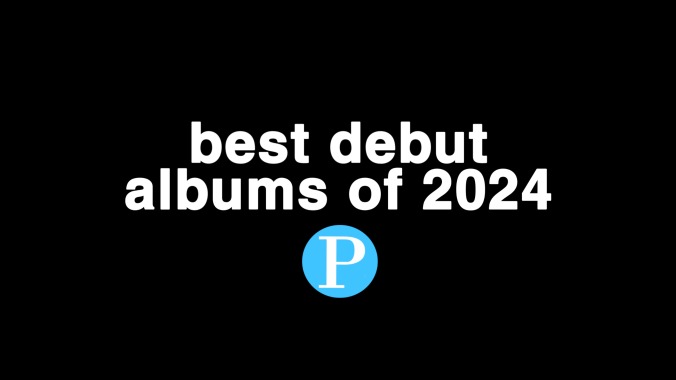
This year, I’ve been grateful to discover so many new artists. 2024 didn’t disappoint, pointing my focus in the direction of new bands like English Teacher, Lip Critic and Ekko Astral, among many, many others. We’ve been keeping a close eye on the brightest up-and-coming acts via our Best of What’s Next series, but there were quite a few artists we weren’t able to cover this year who are making some of the most urgent and tremendous material around.
For this list, we are not considering artists who’ve undergone stage name changes (sorry, Sturgill). Our focus is on new bands, artists striking out on their own solo and whatever has fallen in-between since January. Without further ado, here are the 40 best debut albums of 2024. —Matt Mitchell, Music Editor
Album We Really Loved But Didn’t Review Until After This List Was Already Finished: Cameron Winter, Heavy Metal
 Heavy Metal possesses limitless concepts, stories, journeys and fables rolled into one. “Nausicaä (Love Will Be Revealed)” is profound and somewhat prophetic, as Cameron Winter voices his need to see and be seen, to hear and be heard, to know that someone is here and for someone to know that he is here. In Homer’s Odyssey, Nausicaä is young and beautiful, and helps Odysseus after he is shipwrecked by offering him clothes and bringing him back to the edge of town. The songs of Heavy Metal ache with a deep sense of longing, and a hope that help will come in the form of love—which takes many different shapes throughout. Love will be revealed, it “takes miles,” but it will eventually call—and when it does come, it will be like nothing you’ve ever felt before. “There’s a sardonic self-awareness that defines Heavy Metal and its existentialism, but the illusive presence of God and religion throughout the album blurs the line between handcrafted irony and pure authenticity. References to deity reveal themselves, such as when he tells his lover they were born to hold his “cannonball brain like the Lord holds the moon” on “Try as I May.” The most damning display of this is the feverish descent of “$0,” in which Winter triumphantly proclaims, “God is real, I’m not kidding this time, I think God is actually for real, I wouldn’t joke about this.” For how straightforward his claims of enlightenment are, his detached, impassive tone still makes it hard to tell if he truly is for real or not (he swears he is). It shouldn’t be funny, but in a feat that is nothing less than impressive, it still manages to be. But it feels as though that was one of Winter’s goals with the work—to create a paradigm of truth and fiction, reality and the abstract, humor and utter seriousness. —Alli Dempsey [Partisan]
Heavy Metal possesses limitless concepts, stories, journeys and fables rolled into one. “Nausicaä (Love Will Be Revealed)” is profound and somewhat prophetic, as Cameron Winter voices his need to see and be seen, to hear and be heard, to know that someone is here and for someone to know that he is here. In Homer’s Odyssey, Nausicaä is young and beautiful, and helps Odysseus after he is shipwrecked by offering him clothes and bringing him back to the edge of town. The songs of Heavy Metal ache with a deep sense of longing, and a hope that help will come in the form of love—which takes many different shapes throughout. Love will be revealed, it “takes miles,” but it will eventually call—and when it does come, it will be like nothing you’ve ever felt before. “There’s a sardonic self-awareness that defines Heavy Metal and its existentialism, but the illusive presence of God and religion throughout the album blurs the line between handcrafted irony and pure authenticity. References to deity reveal themselves, such as when he tells his lover they were born to hold his “cannonball brain like the Lord holds the moon” on “Try as I May.” The most damning display of this is the feverish descent of “$0,” in which Winter triumphantly proclaims, “God is real, I’m not kidding this time, I think God is actually for real, I wouldn’t joke about this.” For how straightforward his claims of enlightenment are, his detached, impassive tone still makes it hard to tell if he truly is for real or not (he swears he is). It shouldn’t be funny, but in a feat that is nothing less than impressive, it still manages to be. But it feels as though that was one of Winter’s goals with the work—to create a paradigm of truth and fiction, reality and the abstract, humor and utter seriousness. —Alli Dempsey [Partisan]
40. SPRINTS: Letter to Self
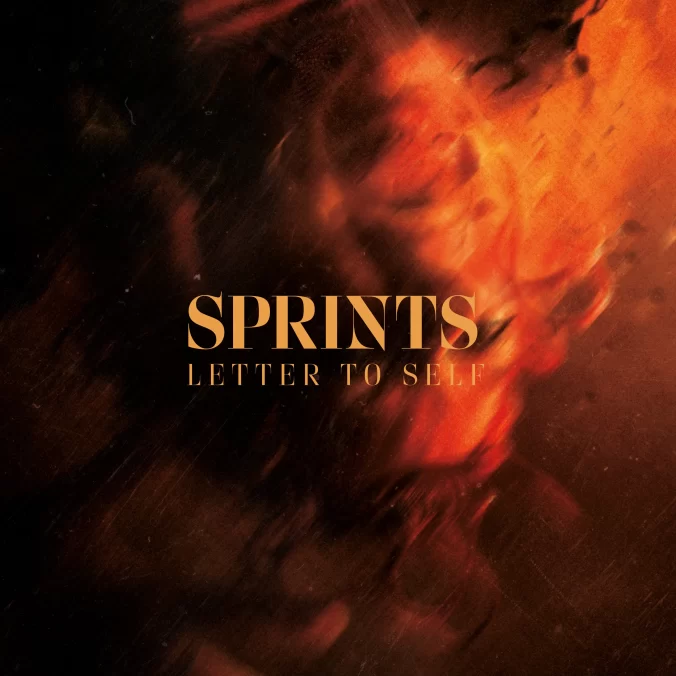 Tapping into drone-y and noisy elements were key to creating the anxious, sweat-drenched atmosphere SPRINTS wanted on Letter to Self. The band see opener “Ticking” and the following track “Heavy” as sister songs, with the former as “the start of the spiral and the panic in your chest, and ‘Heavy’ is when that panic has fully hit, when you’re in bed at six a.m. and you haven’t slept.” “Heavy,” meanwhile, draws inspiration from gothic rockers Bauhaus. The song invokes the headrush of fear after a night out, when you arrive home just as everyone else is going to work and question what you’re even doing with your life. The emotional crux of the album arrives in the form of “Shadow of a Doubt,” all about suicidal ideation and deep, distressing loneliness. After the gravity of a track like that, “Can’t Get Enough of It” is a breath of fresh air to start off the B-side. Sam McCann briefly moved in with Karla Chubb during COVID, and this was one of the first songs they wrote together, drunk in her spare room. The album’s penultimate track, “Up and Comer,” asks that question that haunts many bands: When do you stop being the hot new group on the scene and start just being known for your sheer talent? It’s a conundrum for SPRINTS that they hope is solved by the release of their debut, which hopefully situates them as a mainstay of Ireland’s bursting music scene. Chubb’s delivery drips with sarcasm as she sing-screams, “They say she’s good for an up and comer.” Finally, we arrive at the title track, when Chubb answers her initial cry of “Am I alive?” on “Ticking” with a definite, “But I am alive.” Letter to Self the album is laden with doom, but “Letter to Self” the song is when the listener comes full circle, ultimately finding an inner peace—even if the soundtrack to that peace is anything but serene. —Clare Martin [City Slang]
Tapping into drone-y and noisy elements were key to creating the anxious, sweat-drenched atmosphere SPRINTS wanted on Letter to Self. The band see opener “Ticking” and the following track “Heavy” as sister songs, with the former as “the start of the spiral and the panic in your chest, and ‘Heavy’ is when that panic has fully hit, when you’re in bed at six a.m. and you haven’t slept.” “Heavy,” meanwhile, draws inspiration from gothic rockers Bauhaus. The song invokes the headrush of fear after a night out, when you arrive home just as everyone else is going to work and question what you’re even doing with your life. The emotional crux of the album arrives in the form of “Shadow of a Doubt,” all about suicidal ideation and deep, distressing loneliness. After the gravity of a track like that, “Can’t Get Enough of It” is a breath of fresh air to start off the B-side. Sam McCann briefly moved in with Karla Chubb during COVID, and this was one of the first songs they wrote together, drunk in her spare room. The album’s penultimate track, “Up and Comer,” asks that question that haunts many bands: When do you stop being the hot new group on the scene and start just being known for your sheer talent? It’s a conundrum for SPRINTS that they hope is solved by the release of their debut, which hopefully situates them as a mainstay of Ireland’s bursting music scene. Chubb’s delivery drips with sarcasm as she sing-screams, “They say she’s good for an up and comer.” Finally, we arrive at the title track, when Chubb answers her initial cry of “Am I alive?” on “Ticking” with a definite, “But I am alive.” Letter to Self the album is laden with doom, but “Letter to Self” the song is when the listener comes full circle, ultimately finding an inner peace—even if the soundtrack to that peace is anything but serene. —Clare Martin [City Slang]
Read: “Fueled By Horror Films and Pints, SPRINTS Make Music to Defy Society’s Expectations”
39. cumgirl8: the 8th cumming
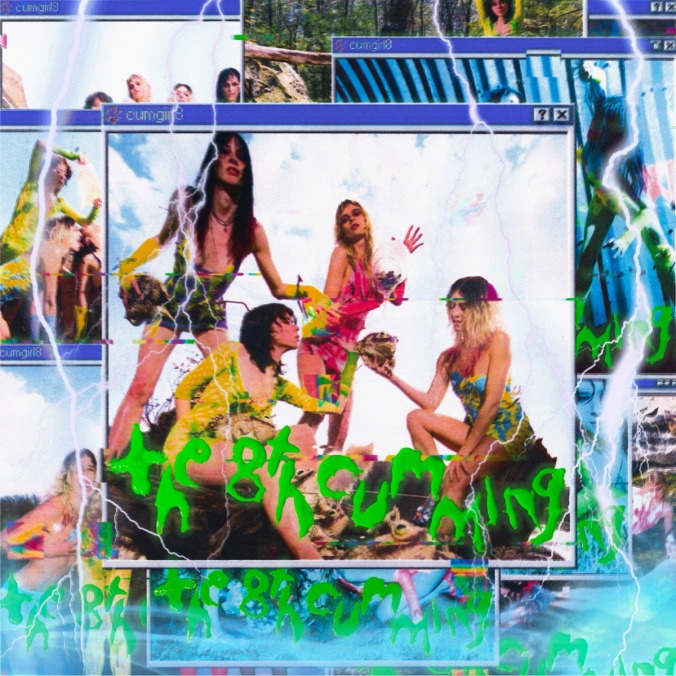 the 8th cumming will be, mark my words, the LP that introduces cumgirl8 to the rest of the pop-starved, freaky-as-fuck world. “mercy” is a SOTY candidate, existing as this sleazy, dramatic symphony that’s massive in color and scope—encompassing the crux of cumgirl8’s intentions here on Earth. The arrangements are hyper-alive, as the women reach a certain level of bombast that arrives to the rest of us like some shred of amorphous enlightenment. I tend to gravitate toward fucked-up art, but not in a heavy sense. It’s the explicit stuff probing the parts of humanity we’re taught, from a young age, to not engage with that grabs me. When cumgirl8 sing a lyric like “Let me lick my drip up from your chin to your lips” and “I want you to have your way with me ’til I die” with a certain taste of apocalypse on their tongues, or when they are writing songs about mental masturbation while also considering the human versus machine relationships, they beg their listeners to step into a zone that is systematically made to feel uncomfortable. As cumgirl8 see it, “post-reality” has already set in. Their music then, as it exists through the 8th cumming of it all, is a tome that can bring people into a present moment and make them live in it. —Matt Mitchell [4AD]
the 8th cumming will be, mark my words, the LP that introduces cumgirl8 to the rest of the pop-starved, freaky-as-fuck world. “mercy” is a SOTY candidate, existing as this sleazy, dramatic symphony that’s massive in color and scope—encompassing the crux of cumgirl8’s intentions here on Earth. The arrangements are hyper-alive, as the women reach a certain level of bombast that arrives to the rest of us like some shred of amorphous enlightenment. I tend to gravitate toward fucked-up art, but not in a heavy sense. It’s the explicit stuff probing the parts of humanity we’re taught, from a young age, to not engage with that grabs me. When cumgirl8 sing a lyric like “Let me lick my drip up from your chin to your lips” and “I want you to have your way with me ’til I die” with a certain taste of apocalypse on their tongues, or when they are writing songs about mental masturbation while also considering the human versus machine relationships, they beg their listeners to step into a zone that is systematically made to feel uncomfortable. As cumgirl8 see it, “post-reality” has already set in. Their music then, as it exists through the 8th cumming of it all, is a tome that can bring people into a present moment and make them live in it. —Matt Mitchell [4AD]
Read: “cumgirl8: The Best of What’s Next”
38. Tierra Whack: WORLD WIDE WHACK
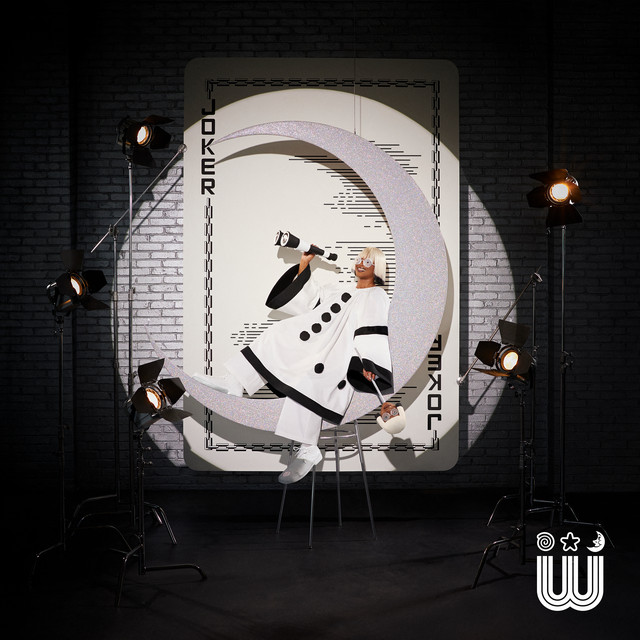 For over a decade, Tierra Whack has been making visionary music—so it’s pretty unbelievable that the Philly rapper is just now dropping her debut album. Whimsically catchy yet deeply vulnerable, WORLD WIDE WHACK explores the 28-year-old’s psyche during a tumultuous time for her mental health, which she vividly describes in “27 Club,” a somber serenade about her contemplation of suicide during a particularly dark period. Still giving us short and sweet bits of herself in “Mood Swing,” “Numb” and “Burning Brains,” Whack delivers emotional heft in every note. However, with her, we never stay in the dark for too long. Whack brings back her casually slick and witty flow on the electro grooves of “Shower Song” as she tells us to “sing it” like “Whitney, Britney, Aretha and Alicia”—the perfect lineup for a sudsy performance. Tierra Whack never disappoints when it comes to creating rich sonic textures and colorful production with just as vibrant visuals to match, and she’s genuinely inviting us into her world and not shying away from any part of herself in her harlequin masterpiece. —Olivia Abercrombie [Interscope]
For over a decade, Tierra Whack has been making visionary music—so it’s pretty unbelievable that the Philly rapper is just now dropping her debut album. Whimsically catchy yet deeply vulnerable, WORLD WIDE WHACK explores the 28-year-old’s psyche during a tumultuous time for her mental health, which she vividly describes in “27 Club,” a somber serenade about her contemplation of suicide during a particularly dark period. Still giving us short and sweet bits of herself in “Mood Swing,” “Numb” and “Burning Brains,” Whack delivers emotional heft in every note. However, with her, we never stay in the dark for too long. Whack brings back her casually slick and witty flow on the electro grooves of “Shower Song” as she tells us to “sing it” like “Whitney, Britney, Aretha and Alicia”—the perfect lineup for a sudsy performance. Tierra Whack never disappoints when it comes to creating rich sonic textures and colorful production with just as vibrant visuals to match, and she’s genuinely inviting us into her world and not shying away from any part of herself in her harlequin masterpiece. —Olivia Abercrombie [Interscope]
Read: “Tierra Whack’s Multi-Hyphenated, Multi-Dimensional Authenticity”
37. Katie Gavin: What a Relief
 MUNA bandleader Katie Gavin has described What a Relief to be “Lilith Fair-core,” a reclamation of the Sarah McLachlan, Dan Fraser and Terry McBride-founded summer music revival that celebrates the good parts of OG feminism—especially celebrating people of marginalized genders who are expressing themselves in ways that go well beyond themselves as objects. “Lilith Fair-core” is about women portraying themselves as complex people. The What a Relief songs are ambivalent, toeing a blurred line between joy and melancholy. The unsung hero of What a Relief is “As Good As It Gets,” the final song Gavin wrote for the album that will endure as its anchor of clarity—a mark that tends to the comforts, mundanity and hardships of age-old love. There is so much intimacy on a record like What a Relief—it’s a contagious, honest reflection of affection. On “The Baton,” Gavin writes about intergenerational healing being a relay race. As a non-binary person who has a close relationship with their mom and can see the fractures she and I share, there is something rewarding about hearing the details of a queer songwriter’s interior life—especially details delivered through such graceful reckoning. Then, on the country-inflected “Inconsolable,” Gavin’s lens turns to an interrogation: What does it mean to come from a household that lingered without closeness, where “We don’t know how to be helped” turns into “We don’t know how to be held”? It’s a culture of bridges mended, of accountability bleeding into the margins of acceptance. What a Relief is such a deeply earnest, empathetic and personal album that captures exactly what a solo debut is supposed to by introducing us, in full, to Katie Gavin. They say you have your entire life to write your first record, and Gavin certainly took full advantage of that, penning these songs over the course of a decade. —Matt Mitchell [Saddest Factory Records]
MUNA bandleader Katie Gavin has described What a Relief to be “Lilith Fair-core,” a reclamation of the Sarah McLachlan, Dan Fraser and Terry McBride-founded summer music revival that celebrates the good parts of OG feminism—especially celebrating people of marginalized genders who are expressing themselves in ways that go well beyond themselves as objects. “Lilith Fair-core” is about women portraying themselves as complex people. The What a Relief songs are ambivalent, toeing a blurred line between joy and melancholy. The unsung hero of What a Relief is “As Good As It Gets,” the final song Gavin wrote for the album that will endure as its anchor of clarity—a mark that tends to the comforts, mundanity and hardships of age-old love. There is so much intimacy on a record like What a Relief—it’s a contagious, honest reflection of affection. On “The Baton,” Gavin writes about intergenerational healing being a relay race. As a non-binary person who has a close relationship with their mom and can see the fractures she and I share, there is something rewarding about hearing the details of a queer songwriter’s interior life—especially details delivered through such graceful reckoning. Then, on the country-inflected “Inconsolable,” Gavin’s lens turns to an interrogation: What does it mean to come from a household that lingered without closeness, where “We don’t know how to be helped” turns into “We don’t know how to be held”? It’s a culture of bridges mended, of accountability bleeding into the margins of acceptance. What a Relief is such a deeply earnest, empathetic and personal album that captures exactly what a solo debut is supposed to by introducing us, in full, to Katie Gavin. They say you have your entire life to write your first record, and Gavin certainly took full advantage of that, penning these songs over the course of a decade. —Matt Mitchell [Saddest Factory Records]
Read: “Katie Gavin Went Solo, But Not Alone”
36. Sunna Margrét: Finger on Tongue
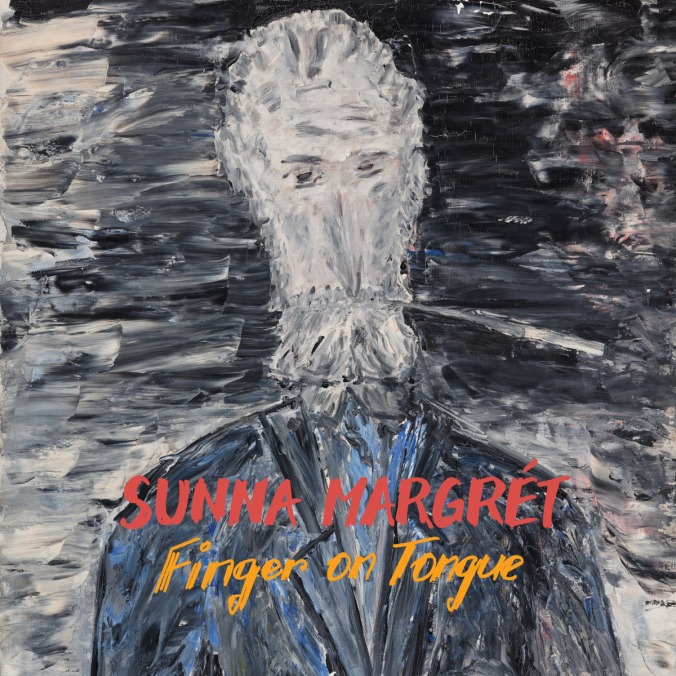 Icelandic art-pop artist Sunna Margrét’s debut album Finger on Tongue is a singular tapestry woven with ghostly synths, heavy beats and whispered vocals. Margrét self-produced the record, which she released via her own Switzerland-based label, No Salad Records. Her eclectic, verging-on-avant-garde sound draws from such influences as CAN, The Space Lady and Suzanne Ciani. Margrét’s haunting delivery, particularly on the sparse track “Hibiscus,” would be right at home in a Twin Peaks dream sequence. The subtle electronica of opening track “Chocolate” veers into Frou Frou territory at times, while “Come with Me” feels like it’s backed by a misbehaving dial tone and an insistent club beat. Thanks to Margrét’s keen songwriting, Finger on Tongue proves bizarre to the point of being otherworldly, yet remains firmly rooted in the human experience. —Clare Martin [No Salad]
Icelandic art-pop artist Sunna Margrét’s debut album Finger on Tongue is a singular tapestry woven with ghostly synths, heavy beats and whispered vocals. Margrét self-produced the record, which she released via her own Switzerland-based label, No Salad Records. Her eclectic, verging-on-avant-garde sound draws from such influences as CAN, The Space Lady and Suzanne Ciani. Margrét’s haunting delivery, particularly on the sparse track “Hibiscus,” would be right at home in a Twin Peaks dream sequence. The subtle electronica of opening track “Chocolate” veers into Frou Frou territory at times, while “Come with Me” feels like it’s backed by a misbehaving dial tone and an insistent club beat. Thanks to Margrét’s keen songwriting, Finger on Tongue proves bizarre to the point of being otherworldly, yet remains firmly rooted in the human experience. —Clare Martin [No Salad]
35. Clothing: From Memory
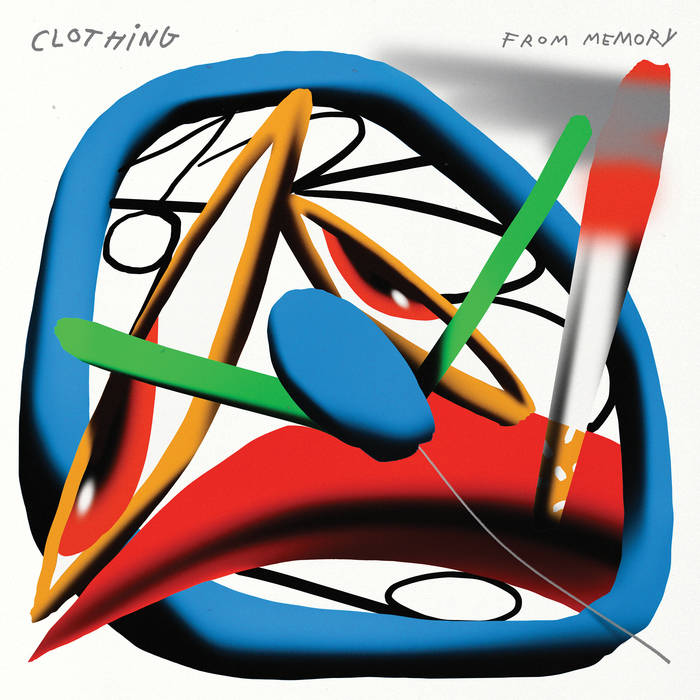 The debut album from Dawn of Midi’s Aakaash Israni and Cookies’ Ben Sterling, From Memory establishes Clothing as an electronic duo worth hanging onto. Working with vocalists like Amber Coffman, Elliott Skinner, L’Rain and Anna Wise, Israni and Sterling make bouncy, scattered instrumentation rich, rising and beautiful beneath the pillowy, feathering vocals of From Memory’s guest singers. On “Kingdom,” Dirty Projectors’ Coffman crescendos her voice over accented and free-flowing beats, creating a rich blend of sound. The arrangement sharply shifts from moments of condensed sound to sparse vulnerable intersections. Coffman sings, “Now all I have is this silence,” amidst the bending and jolting rhythm of the instrumentation. “Kingdom” evolves sharply throughout its runtime and intrigues further with every listen. On “Still Point,” the Californians enlist L’Rain to lead a spacious, atmospheric ballad with her measured yet commanding vocals. It may be, as L’Rain herself says, a long way down to the bottom, but she sings this hook as though she’s floating on air—the thinning strings, scattered percussion and outstretched layers of vocal harmonies orbiting her voice as the center of the track’s solar system, “the still point of a turning wheel.” Here’s to hoping that From Memory isn’t just a one-off. —Grace Ann Natanawan & Grace Robins-Somerville [Water Level]
The debut album from Dawn of Midi’s Aakaash Israni and Cookies’ Ben Sterling, From Memory establishes Clothing as an electronic duo worth hanging onto. Working with vocalists like Amber Coffman, Elliott Skinner, L’Rain and Anna Wise, Israni and Sterling make bouncy, scattered instrumentation rich, rising and beautiful beneath the pillowy, feathering vocals of From Memory’s guest singers. On “Kingdom,” Dirty Projectors’ Coffman crescendos her voice over accented and free-flowing beats, creating a rich blend of sound. The arrangement sharply shifts from moments of condensed sound to sparse vulnerable intersections. Coffman sings, “Now all I have is this silence,” amidst the bending and jolting rhythm of the instrumentation. “Kingdom” evolves sharply throughout its runtime and intrigues further with every listen. On “Still Point,” the Californians enlist L’Rain to lead a spacious, atmospheric ballad with her measured yet commanding vocals. It may be, as L’Rain herself says, a long way down to the bottom, but she sings this hook as though she’s floating on air—the thinning strings, scattered percussion and outstretched layers of vocal harmonies orbiting her voice as the center of the track’s solar system, “the still point of a turning wheel.” Here’s to hoping that From Memory isn’t just a one-off. —Grace Ann Natanawan & Grace Robins-Somerville [Water Level]
34. Robber Robber: Wild Guess
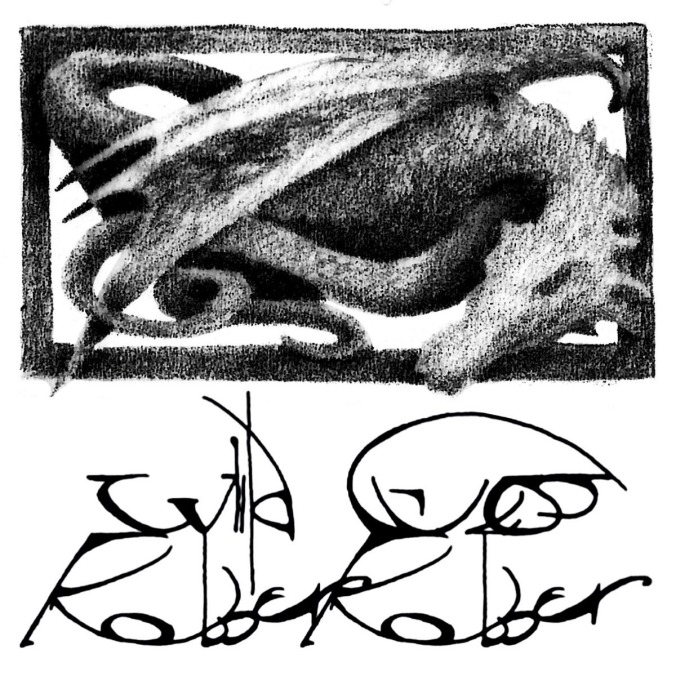 Wild Guess is a gorgeous assembly of curiosity, with tracks like “Sea or War” propelling doggedly forward like a six-foot wave of anticipation, and the funky undulating intrigue of “Backup Plan” flecked with Will Krulak’s biting riffs accenting a uniquely asymmetrical drum pattern from Zack James. “Dial Tone” lives in the realm of punky noise rock while maintaining a healthy amount of eccentricity from the unsettling wailing guitar to Nina Cates’s persistently frustrated tone venting about chasing connections. The playful “How We Ball” brings a bit of Blondie into the mix and, even in Cates’s delivery, some Le Tigre—but it maintains that Robber Robber individuality with its zoomed-out, unpredictable song structure. Naming their debut Wild Guess is an expert way to categorize their sound. It’s not stuck in a generic box but instead is an experiment in blending noises that feel correct in the world of Robber Robber. The chaos is the formula. Similar to how they named themselves, Robber Robber’s music follows a similar impulse-driven energy—Cate and James looking for things that excites them and pushes their shared musical expertise forward. The aptly titled Wild Guess is an enthralling exercise of tension and release driven, first and foremost, by the pair’s interest in playing around with what it means to relieve that tension and what happens when you don’t. —Olivia Abercrombie [Self-Released]
Wild Guess is a gorgeous assembly of curiosity, with tracks like “Sea or War” propelling doggedly forward like a six-foot wave of anticipation, and the funky undulating intrigue of “Backup Plan” flecked with Will Krulak’s biting riffs accenting a uniquely asymmetrical drum pattern from Zack James. “Dial Tone” lives in the realm of punky noise rock while maintaining a healthy amount of eccentricity from the unsettling wailing guitar to Nina Cates’s persistently frustrated tone venting about chasing connections. The playful “How We Ball” brings a bit of Blondie into the mix and, even in Cates’s delivery, some Le Tigre—but it maintains that Robber Robber individuality with its zoomed-out, unpredictable song structure. Naming their debut Wild Guess is an expert way to categorize their sound. It’s not stuck in a generic box but instead is an experiment in blending noises that feel correct in the world of Robber Robber. The chaos is the formula. Similar to how they named themselves, Robber Robber’s music follows a similar impulse-driven energy—Cate and James looking for things that excites them and pushes their shared musical expertise forward. The aptly titled Wild Guess is an enthralling exercise of tension and release driven, first and foremost, by the pair’s interest in playing around with what it means to relieve that tension and what happens when you don’t. —Olivia Abercrombie [Self-Released]
Read: “Robber Robber Get Unpredictable”
33. English Teacher: This Could Be Texas
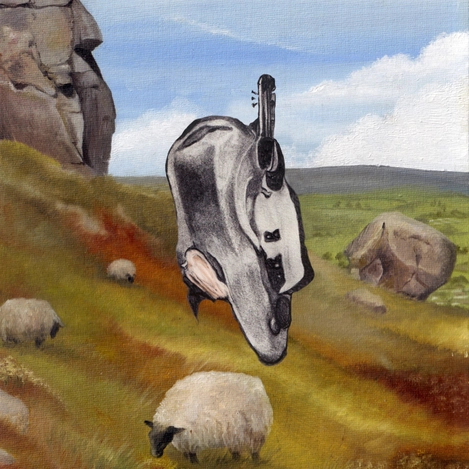 If you’ve been tuned in at all, then you might already be aware of just how good Leeds quartet English Teacher’s debut album, This Could Be Texas, is. With Lily Fontaine’s voice at the center of it all, these 13 tracks wail and ache and resonate. Truly, this record is chalk-full of some of the cleverest lyricism of the year thus far—a massive accomplishment for a band on their first proper release. And the buzz is earned, as the work arrives profound in its attention to sublime simplicity. A verse like “The thing is, I’ve got a taste of what it feels like to be close enough, and I hope I can get my mind right so I can keep it up” on “R&B” works because Fontaine delivers it in such a way that the melody’s catchiness sneaks up on you and refuses to let you go. On “The World’s Biggest Paving Slab,” the guitars nurture Fontaine’s vocals ever so preciously until they don’t—eventually erupting into a rapturous bevy of riffs that reek with post-rock ingenuity. But it’s all so sticky-sweet, with tracks like “Mastermind Specialism” and “Albert Road” flaunting English Teacher’s sharp command of pop-rock sensibilities and in-sync craftsmanship. If there ever were a new band worth keeping tabs on, here’s one making it all look easy. —Matt Mitchell [Island]
If you’ve been tuned in at all, then you might already be aware of just how good Leeds quartet English Teacher’s debut album, This Could Be Texas, is. With Lily Fontaine’s voice at the center of it all, these 13 tracks wail and ache and resonate. Truly, this record is chalk-full of some of the cleverest lyricism of the year thus far—a massive accomplishment for a band on their first proper release. And the buzz is earned, as the work arrives profound in its attention to sublime simplicity. A verse like “The thing is, I’ve got a taste of what it feels like to be close enough, and I hope I can get my mind right so I can keep it up” on “R&B” works because Fontaine delivers it in such a way that the melody’s catchiness sneaks up on you and refuses to let you go. On “The World’s Biggest Paving Slab,” the guitars nurture Fontaine’s vocals ever so preciously until they don’t—eventually erupting into a rapturous bevy of riffs that reek with post-rock ingenuity. But it’s all so sticky-sweet, with tracks like “Mastermind Specialism” and “Albert Road” flaunting English Teacher’s sharp command of pop-rock sensibilities and in-sync craftsmanship. If there ever were a new band worth keeping tabs on, here’s one making it all look easy. —Matt Mitchell [Island]
32. Tama Gucci: Notes to Self
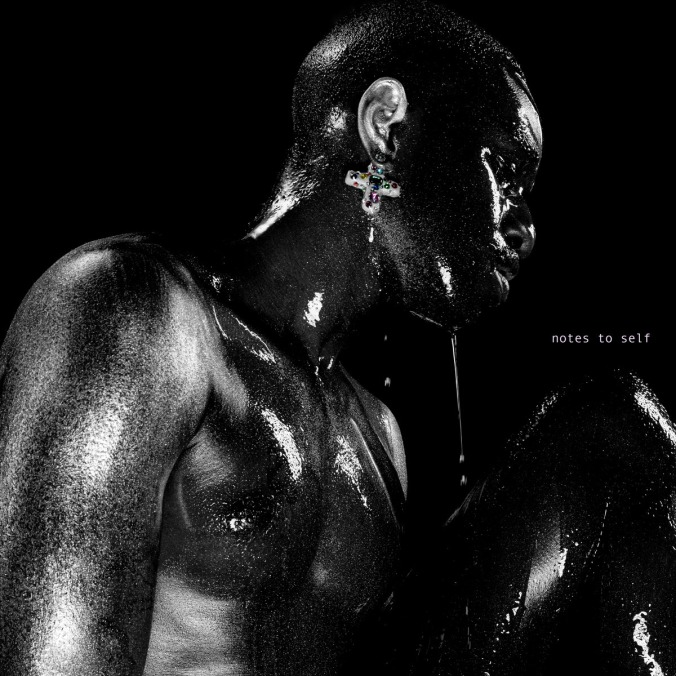 Notes to Self, the debut album from Miami-raised, New York-based singer, producer and DJ Tama Gucci, is a terrific, club-ready synth-pop record worth its weight in vulnerability and catchy splendor. Influenced by South Florida’s underground queer rave scene, Notes to Self flutters through journal entries and shimmering techno glitches, offering sobering pop and vocally resplendent nuggets like “Didn’t Have To,” “Runaway Pup” and “No More ‘I Love You’s’,” the former of which sounds like a warehouse rager reconfigured into a dubby, lush palette of ‘90s R&B, jungle and raw, subtle hyperpop emblems. “I’m still stuck on your smile,” Gucci sings, and it’s a charm that echoes in every syllable across Notes to Self. —Matt Mitchell [Self-Released]
Notes to Self, the debut album from Miami-raised, New York-based singer, producer and DJ Tama Gucci, is a terrific, club-ready synth-pop record worth its weight in vulnerability and catchy splendor. Influenced by South Florida’s underground queer rave scene, Notes to Self flutters through journal entries and shimmering techno glitches, offering sobering pop and vocally resplendent nuggets like “Didn’t Have To,” “Runaway Pup” and “No More ‘I Love You’s’,” the former of which sounds like a warehouse rager reconfigured into a dubby, lush palette of ‘90s R&B, jungle and raw, subtle hyperpop emblems. “I’m still stuck on your smile,” Gucci sings, and it’s a charm that echoes in every syllable across Notes to Self. —Matt Mitchell [Self-Released]
31. Laughing: Because It’s True
 For fans of slacker-rock with guitar solos, Laughing should appeal to fans of Pavement, Dinosaur Jr, and Built to Spill. They might even remind your parents of their favorite Neil Young and Crazy Horse records. Of course, if you haven’t been clued into Canadian indie rock before reading this review, don’t worry—no table-setting is necessary. Packing their debut album with power-pop harmonies, country-rock twang and rambling riffs, Laughing’s 11 songs are as sonically tasty as a slice of André Charles Thériault’s pie. However, while Because It’s True isn’t a breakup album per se, the band’s lyrics continually circle back to emotional topics such as heartbreak, loss of self-esteem, and longing for friendship. Josh Salter’s “Bruised” is one of the catchiest woe-is-me anthems to hit the underground charts in ages, with a charming VHS video to match its head-sticking hooks. The twangy “Don’t Care”—with Laura Jeffery on lead vocals—should appeal to fans of contemporary indie-country acts like Dougie Poole or the Courtneys side-project Big Rig, while “Pebble” might be the best song Big Star never wrote. —Jesse Locke [Meritorio]
For fans of slacker-rock with guitar solos, Laughing should appeal to fans of Pavement, Dinosaur Jr, and Built to Spill. They might even remind your parents of their favorite Neil Young and Crazy Horse records. Of course, if you haven’t been clued into Canadian indie rock before reading this review, don’t worry—no table-setting is necessary. Packing their debut album with power-pop harmonies, country-rock twang and rambling riffs, Laughing’s 11 songs are as sonically tasty as a slice of André Charles Thériault’s pie. However, while Because It’s True isn’t a breakup album per se, the band’s lyrics continually circle back to emotional topics such as heartbreak, loss of self-esteem, and longing for friendship. Josh Salter’s “Bruised” is one of the catchiest woe-is-me anthems to hit the underground charts in ages, with a charming VHS video to match its head-sticking hooks. The twangy “Don’t Care”—with Laura Jeffery on lead vocals—should appeal to fans of contemporary indie-country acts like Dougie Poole or the Courtneys side-project Big Rig, while “Pebble” might be the best song Big Star never wrote. —Jesse Locke [Meritorio]
30. Rui Gabriel: Compassion
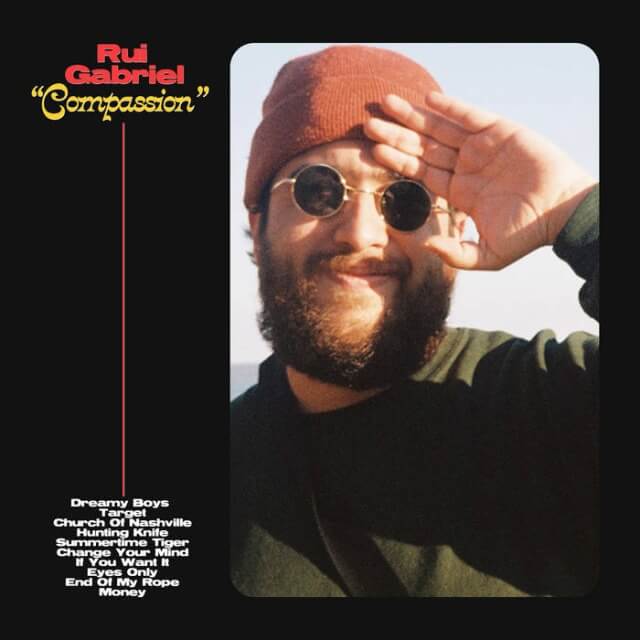 Even though Compassion is Rui Gabriel’s solo debut, the Venezuela-raised, Indiana-based singer, songwriter and multi-instrumentalist has been kicking around in the band Lawn for more than 10 years now. Gabriel’s first offering under his own name, however, isn’t the post-punk he and Lawn make together. Instead, Compassion is a sharp turn towards pop and bedroom music, one that took Gabriel six years to complete. “Summertime Tiger,” “Target” and “Eyes Only” are bonafide summer hits, while a track like “Church of Nashville” is an earworm that also serves as a moving critique of industry cliques and systematic hurdles. Compassion is Gabriel’s self-described “coming of age record for somebody who’s coming of age in their 30s,” and it has all of the markers of an instant indie-pop classic. For one of rock’s sweetest modern journeymen, that’s a feat that just makes total sense. —Matt Mitchell [Carpark]
Even though Compassion is Rui Gabriel’s solo debut, the Venezuela-raised, Indiana-based singer, songwriter and multi-instrumentalist has been kicking around in the band Lawn for more than 10 years now. Gabriel’s first offering under his own name, however, isn’t the post-punk he and Lawn make together. Instead, Compassion is a sharp turn towards pop and bedroom music, one that took Gabriel six years to complete. “Summertime Tiger,” “Target” and “Eyes Only” are bonafide summer hits, while a track like “Church of Nashville” is an earworm that also serves as a moving critique of industry cliques and systematic hurdles. Compassion is Gabriel’s self-described “coming of age record for somebody who’s coming of age in their 30s,” and it has all of the markers of an instant indie-pop classic. For one of rock’s sweetest modern journeymen, that’s a feat that just makes total sense. —Matt Mitchell [Carpark]
Read: “Rui Gabriel: The Best of What’s Next”
29. fantasy of a broken heart: Feats of Engineering
 Al Nardo and Bailey Wolowitz, who are often taking turns playing in bands like Water From Your Eyes and Sloppy Jane, also happen to have a project of their own together: fantasy of a broken heart. Their new record, Feats of Engineering, is a collage of pop goodness I haven’t been able to put down lately. “Ur Heart Stops” sounds like something Elliott Smith might have cooked up if he’d haunted the Glove or Heck in New York City, or got really big during the bedroom dream pop boom of the early 2010s. Combining freak-folk, synth-pop and psych-rock, fantasy of a broken heart revels in buttoning up a truly indescribable yet positively chaotically beautiful sound that I, personally, cannot get enough of. I am reminded of Dirt Buyer and Crooks & Nannies for the multi-dimensional signals of cross-genre fascination and finesse, as well as the subdued undercurrent of pop wonder that often populates the backbone of Nate Amos’s This Is Lorelei project (a band that Nardo and Wolowitz also play in sometimes). “Ur Heart Stops” is full of hooks, jamming keys that flutter with glitter and, most emphatically, a core duo of voices from Nardo and Wolowitz. They bounce off of each other as they seize every sound they can, and it’s positively enthralling at every turn and triumph. Caught somewhere in-between musical theater, glam rock and dance-pop, fantasy of a broken heart skedaddle across this LP, as they do on “Loss”—an irresistible jaunt that is so Vaudevillian that the cycle quickly loops around into something terrifically contemporary and uncategorical. This is the kind of unpredictable music I crave, as it oscillates through various levels of distortion, choral harmonies and swirling, multi-patterned chord progressions and tempo-shifts. “I raze my wrists in Camelot, hoping that the sting will ease the ringing,” Bailey sings out, before Al’s light-touch of “Loss won’t cure you” comes sweeping in. It’s all very baroque, surreal and heart-warming, in the kind of way that feels as much like a road-trip through a century of music as it does a modern-day discovery of something plentiful, handsome, ornate and shockingly new. —Matt Mitchell [Dots Per Inch]
Al Nardo and Bailey Wolowitz, who are often taking turns playing in bands like Water From Your Eyes and Sloppy Jane, also happen to have a project of their own together: fantasy of a broken heart. Their new record, Feats of Engineering, is a collage of pop goodness I haven’t been able to put down lately. “Ur Heart Stops” sounds like something Elliott Smith might have cooked up if he’d haunted the Glove or Heck in New York City, or got really big during the bedroom dream pop boom of the early 2010s. Combining freak-folk, synth-pop and psych-rock, fantasy of a broken heart revels in buttoning up a truly indescribable yet positively chaotically beautiful sound that I, personally, cannot get enough of. I am reminded of Dirt Buyer and Crooks & Nannies for the multi-dimensional signals of cross-genre fascination and finesse, as well as the subdued undercurrent of pop wonder that often populates the backbone of Nate Amos’s This Is Lorelei project (a band that Nardo and Wolowitz also play in sometimes). “Ur Heart Stops” is full of hooks, jamming keys that flutter with glitter and, most emphatically, a core duo of voices from Nardo and Wolowitz. They bounce off of each other as they seize every sound they can, and it’s positively enthralling at every turn and triumph. Caught somewhere in-between musical theater, glam rock and dance-pop, fantasy of a broken heart skedaddle across this LP, as they do on “Loss”—an irresistible jaunt that is so Vaudevillian that the cycle quickly loops around into something terrifically contemporary and uncategorical. This is the kind of unpredictable music I crave, as it oscillates through various levels of distortion, choral harmonies and swirling, multi-patterned chord progressions and tempo-shifts. “I raze my wrists in Camelot, hoping that the sting will ease the ringing,” Bailey sings out, before Al’s light-touch of “Loss won’t cure you” comes sweeping in. It’s all very baroque, surreal and heart-warming, in the kind of way that feels as much like a road-trip through a century of music as it does a modern-day discovery of something plentiful, handsome, ornate and shockingly new. —Matt Mitchell [Dots Per Inch]
28. Punchlove: Channels
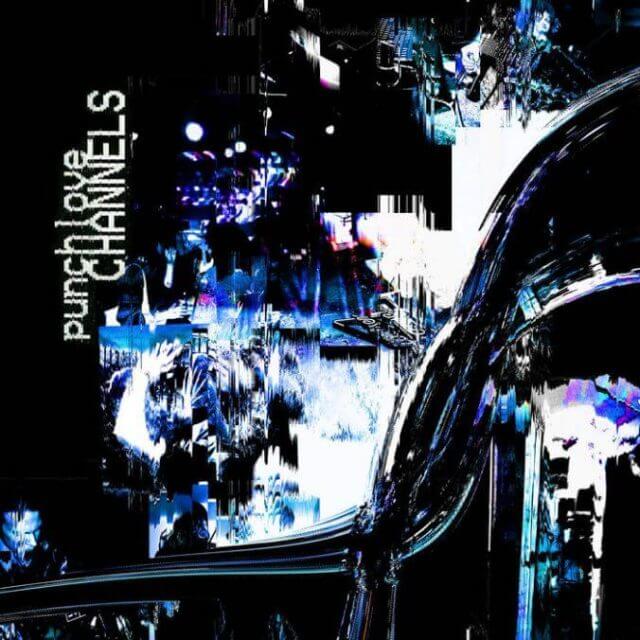 Punchlove centers itself around an electrifying and buzzy sound that is always in motion: flexing, contorting, sauntering and sprinting throughout the tracklist of their debut album, Channels. They sing of the tumultuous journey into coming of age with a slow-burning agency; the journey of Punchlove as a band mirrors that of the genre itself, starting from a small and condensed bedroom project featuring only Olesen and Williams to an immense, sweeping sonic force. The transitions between songs on the album flicker and crackle like watching someone flip through TV channels at lightning speed, creating an enthralling and transitory kaleidoscope of varied sound that evokes the eclectic nature of early Sonic Youth. The throbbing ending measures of “Birdsong” mutates into a scattered and frantic beat that shifts into “Guilt” without hesitation. Despite the sonic contrasts between these sections, the transition is breathtaking. The seamlessness helps to create an incredibly cohesive and uniform album with a pervading fluidity and tightness in its quick pacing. Tracks like “Apartment,” “Dead Lands” and “Elapse” continue to showcase Punchlove’s penchant for playing with texture and space. “Apartment” is adorned with twinkling guitar riffs laced with floating, feathery vocals that expand into a ragged yet grandiose cacophony of blooming, contorted instrumentation. The massive and looming intensity of the percussion pushes and shoves the track to its ending. “Dead Lands” alternates between sparse and dense passages enriched by delicate vocal harmonies and a ringing guitar solo, while “Elapse” is a bit heavier in its warped, grungy sequence that curves and snakes its way through tight, condensed phrases. —Grace Ann Nantanawan [Kanine]
Punchlove centers itself around an electrifying and buzzy sound that is always in motion: flexing, contorting, sauntering and sprinting throughout the tracklist of their debut album, Channels. They sing of the tumultuous journey into coming of age with a slow-burning agency; the journey of Punchlove as a band mirrors that of the genre itself, starting from a small and condensed bedroom project featuring only Olesen and Williams to an immense, sweeping sonic force. The transitions between songs on the album flicker and crackle like watching someone flip through TV channels at lightning speed, creating an enthralling and transitory kaleidoscope of varied sound that evokes the eclectic nature of early Sonic Youth. The throbbing ending measures of “Birdsong” mutates into a scattered and frantic beat that shifts into “Guilt” without hesitation. Despite the sonic contrasts between these sections, the transition is breathtaking. The seamlessness helps to create an incredibly cohesive and uniform album with a pervading fluidity and tightness in its quick pacing. Tracks like “Apartment,” “Dead Lands” and “Elapse” continue to showcase Punchlove’s penchant for playing with texture and space. “Apartment” is adorned with twinkling guitar riffs laced with floating, feathery vocals that expand into a ragged yet grandiose cacophony of blooming, contorted instrumentation. The massive and looming intensity of the percussion pushes and shoves the track to its ending. “Dead Lands” alternates between sparse and dense passages enriched by delicate vocal harmonies and a ringing guitar solo, while “Elapse” is a bit heavier in its warped, grungy sequence that curves and snakes its way through tight, condensed phrases. —Grace Ann Nantanawan [Kanine]
27. Mayme O’Toole: Crying Over Toast
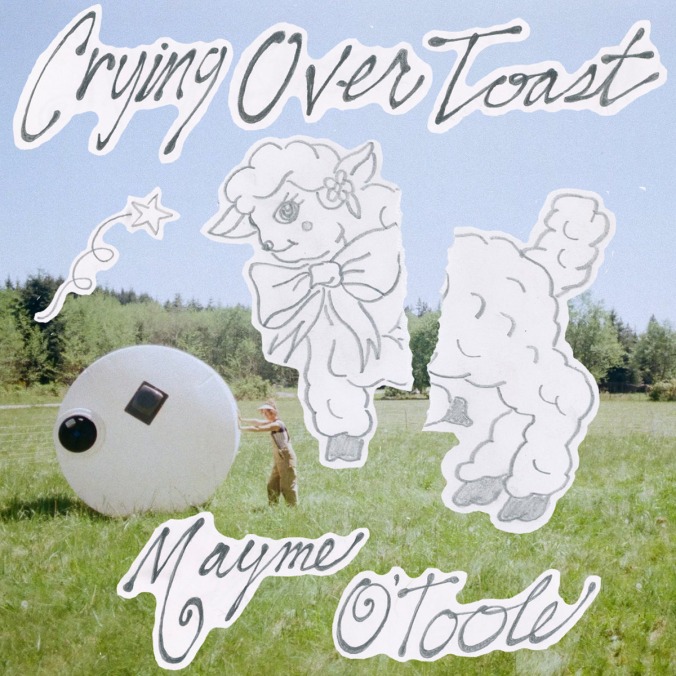 Clocking in at just under 30 minutes, Washington state-based singer-songwriter Mayme O’Toole’s debut album Crying Over Toast is a short and sweet delight. O’Toole’s voice climbs beautifully on the chorus of “Morning Light,” just one of many luminous moments on the glowing, country-inflected record. Her folk-pop sensibilities and the clear-eyed poetry of her lyrics are sure to endear O’Toole to fans of Connie Converse. The Sacramento-raised artist is joined on Crying Over Toast by drummer Charlie Meyer (Sons of Rainier) and LAKE’s Eli Moore and Ashley Eriksson (the former of whom produced the album). This is undoubtedly a feather-soft listen; even the indie rock rush of the title track is only urgent in the context of the album. “Crying Over Toast” unfurls and expands satisfyingly, bolstered by twanging guitar and layered vocals. And I urge you to heed the title of the album—whatever you’re doing, you’re sure to shed a tear when you hear O’Toole’s swoon-worthy cover of Skeeter Davis’ “The End of the World.” —Clare Martin [Self-Released]
Clocking in at just under 30 minutes, Washington state-based singer-songwriter Mayme O’Toole’s debut album Crying Over Toast is a short and sweet delight. O’Toole’s voice climbs beautifully on the chorus of “Morning Light,” just one of many luminous moments on the glowing, country-inflected record. Her folk-pop sensibilities and the clear-eyed poetry of her lyrics are sure to endear O’Toole to fans of Connie Converse. The Sacramento-raised artist is joined on Crying Over Toast by drummer Charlie Meyer (Sons of Rainier) and LAKE’s Eli Moore and Ashley Eriksson (the former of whom produced the album). This is undoubtedly a feather-soft listen; even the indie rock rush of the title track is only urgent in the context of the album. “Crying Over Toast” unfurls and expands satisfyingly, bolstered by twanging guitar and layered vocals. And I urge you to heed the title of the album—whatever you’re doing, you’re sure to shed a tear when you hear O’Toole’s swoon-worthy cover of Skeeter Davis’ “The End of the World.” —Clare Martin [Self-Released]
26. Amy Allen: Amy Allen
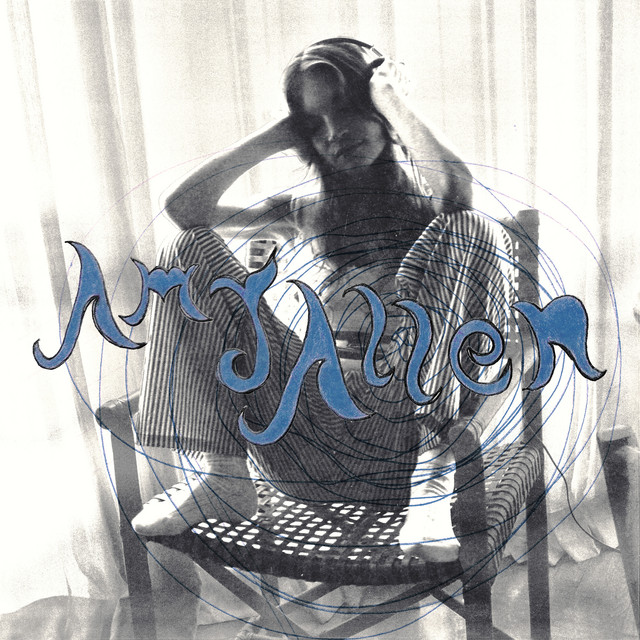 You’ve heard Amy Allen’s work before, as the pop songwriter has amassed credits on Halsey’s “Without Me” and Harry Styles’ “Adore You,” winning an Album of the Year Grammy for her collaborations with the latter. Right now, as I’m writing this, she’s credited as a co-writer on three songs in the Hot 100’s Top 5. Her work with Sabrina Carpenter has helped define the summer, and her debut eponymous album lets her voice stand on its own. “girl with a problem” confirms as much, as it’s a catchy acoustic guitar tune with a windswept, echoey hook. There’s a kaleidoscope of sounds that loop over and over at the song’s end, and you’re not quite sure if it’s Allen’s voice or a synthesizer—in fact, it very well could be a mixture of both. But “girl with a problem” is tight and kinetic, offering a folk soundscape that doesn’t necessarily link up with Allen’s pop sensibilities that have landed her on the Hot 100 chart multiple times—and that’s a good thing, as a song like this showcases her talents and knack for bite-sized perfection. On “darkside,” the chorus is filled-out with an ensemble of glowing, enchanting, orchestral sounds, while the verses are more spacious. Allen’s hushed vocals counteract the song’s final-minute breakdown, which features synthesizers that sound like strings, thumping percussion and a distinctive, cacophonous vocal melody that soars into an ecstatic, crushing coda. “even forever” is bombastically poppy, while “to love me” is solemn and echoey like a teardrop folk staple. Amy Allen is already one of the most successful and respected lyricists in the music industry; her debut never sits still, traipsing through as many genres as it can possibly hold. —Matt Mitchell [Kenny + Betty/AWAL]
You’ve heard Amy Allen’s work before, as the pop songwriter has amassed credits on Halsey’s “Without Me” and Harry Styles’ “Adore You,” winning an Album of the Year Grammy for her collaborations with the latter. Right now, as I’m writing this, she’s credited as a co-writer on three songs in the Hot 100’s Top 5. Her work with Sabrina Carpenter has helped define the summer, and her debut eponymous album lets her voice stand on its own. “girl with a problem” confirms as much, as it’s a catchy acoustic guitar tune with a windswept, echoey hook. There’s a kaleidoscope of sounds that loop over and over at the song’s end, and you’re not quite sure if it’s Allen’s voice or a synthesizer—in fact, it very well could be a mixture of both. But “girl with a problem” is tight and kinetic, offering a folk soundscape that doesn’t necessarily link up with Allen’s pop sensibilities that have landed her on the Hot 100 chart multiple times—and that’s a good thing, as a song like this showcases her talents and knack for bite-sized perfection. On “darkside,” the chorus is filled-out with an ensemble of glowing, enchanting, orchestral sounds, while the verses are more spacious. Allen’s hushed vocals counteract the song’s final-minute breakdown, which features synthesizers that sound like strings, thumping percussion and a distinctive, cacophonous vocal melody that soars into an ecstatic, crushing coda. “even forever” is bombastically poppy, while “to love me” is solemn and echoey like a teardrop folk staple. Amy Allen is already one of the most successful and respected lyricists in the music industry; her debut never sits still, traipsing through as many genres as it can possibly hold. —Matt Mitchell [Kenny + Betty/AWAL]
Read: “Meet Amy Allen: Co-Writer, Chart-Topper and Singer-Songwriter Starlet”
25. Bolis Pupul: Letter To Yu
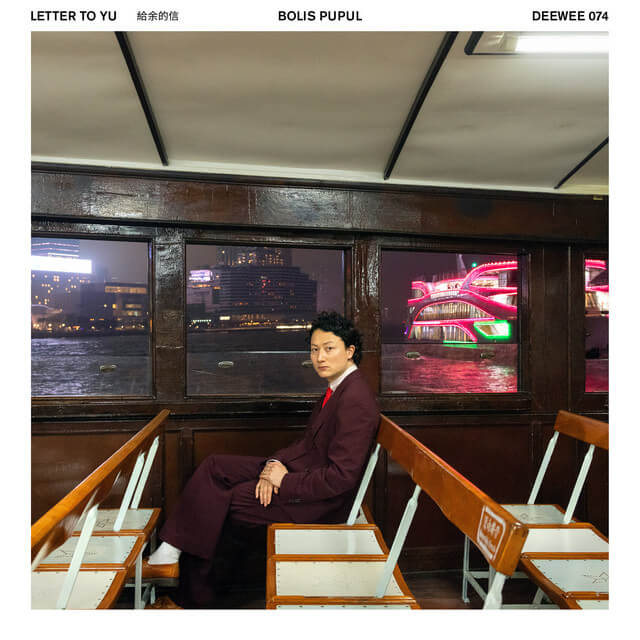 Belgian/Chinese producer Bolis Pupul’s debut solo album, Letter To Yu, is a love-letter to to his mother Yu Wei Wun, who passed away in 2008 in a traffic accident and, inspired by a visit to Hong Kong in 2018 to find her birthplace, incorporates his Chinese legacy into his music. A letter Bolis wrote to his late mother, which detailed his trip to China, served as a catalyst for the rest of Letter To Yu to come to life. “Everyday I wrote something, sometimes it was a melody, the next day it could be a rhythm, I walked around with a field recorder, recording everything around me,” Boris says. “I wrote a letter to my mother when I visited the street where she was born.” Letter To Yu is a striking assembly of memory and future, as Bolis experiments with shimmering electronica and, in one track, even sings in Cantonese—further exploring his own Chinese lineage. The work is a grand and curious measure of synth-pop, and the 11 songs are entrenched in gratitude, lost conversations, vibrant recollections and, above all, a beautiful, familiar balance between regret, hope and familial love. —Matt Mitchell [Deewee]
Belgian/Chinese producer Bolis Pupul’s debut solo album, Letter To Yu, is a love-letter to to his mother Yu Wei Wun, who passed away in 2008 in a traffic accident and, inspired by a visit to Hong Kong in 2018 to find her birthplace, incorporates his Chinese legacy into his music. A letter Bolis wrote to his late mother, which detailed his trip to China, served as a catalyst for the rest of Letter To Yu to come to life. “Everyday I wrote something, sometimes it was a melody, the next day it could be a rhythm, I walked around with a field recorder, recording everything around me,” Boris says. “I wrote a letter to my mother when I visited the street where she was born.” Letter To Yu is a striking assembly of memory and future, as Bolis experiments with shimmering electronica and, in one track, even sings in Cantonese—further exploring his own Chinese lineage. The work is a grand and curious measure of synth-pop, and the 11 songs are entrenched in gratitude, lost conversations, vibrant recollections and, above all, a beautiful, familiar balance between regret, hope and familial love. —Matt Mitchell [Deewee]
24. Royel Otis: Pratts & Pain
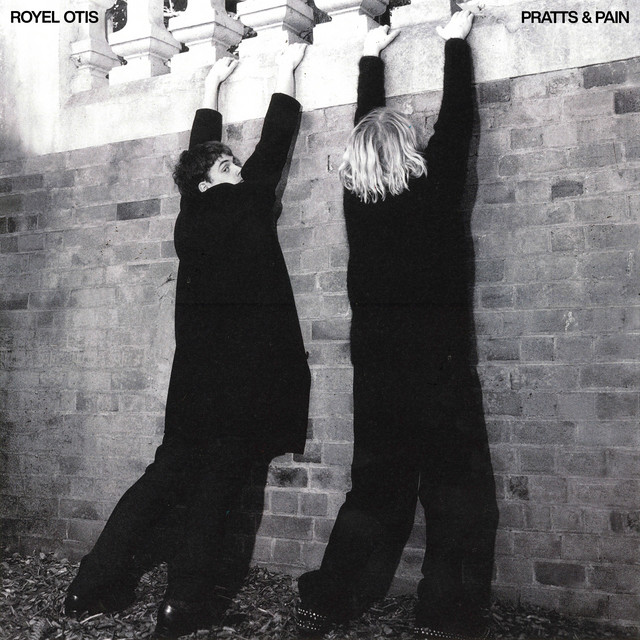 It’s hard to decipher which song on Pratts & Pain best emphasizes Royel Otis’ “level up,” because Royel Maddell and Otis Pavlovic recorded it “a year and a bit ago,” but it’s a project that refuses to linger for too long in any one niche. Gang vocals swarm the melody in “Velvet”; “Sonic Blue” sounds like digitized punk rock lit from within by serrated garage noise; “Adored” is a maelstrom of jettisoned guitar scratches, damp bass licks and masturbation-inspired poetics; “Molly” is languid and brooding, while “Foam” is a psychedelic, romping ode to early 2010s poptronica. But, Maddell and Pavlovic suggest that “Heading For the Door” and “Glory to Glory” are the best examples of where Royel Otis is heading: synth-pop. The Royel Otis sound is unpredictable and often flies by the seat of its pants. Even their virality is the product of last-minute decision-making. That’s how you get an album that begins with kinetic, technicolor whiplash of “Adored” and finishes with the metallic, gnarly, raucous and unkempt “Big Ciggie.” Pratts & Pain is a debut that arrived in February like a third or fourth record, and maybe that has to do with some of the songs—like “Sofa King”—having existed for years already. But there’s something to be said for how good Royel Otis sound so early on in their career, how two Sydney kids funneled their mashed-up ideas through a gear gonzo’s extensive collection of synths and sequencers—and all without sacrificing the noisy, rock-driven baseline that frames so much of their material. And the way the record is multi-directional, collaging textures of post-punk, synth-pop and psychedelia into a project full of juxtaposing, contradictory, bombastic and gentle forces, offers the Royel Otis formula enough space to change from song to song. —Matt Mitchell [Ourness]
It’s hard to decipher which song on Pratts & Pain best emphasizes Royel Otis’ “level up,” because Royel Maddell and Otis Pavlovic recorded it “a year and a bit ago,” but it’s a project that refuses to linger for too long in any one niche. Gang vocals swarm the melody in “Velvet”; “Sonic Blue” sounds like digitized punk rock lit from within by serrated garage noise; “Adored” is a maelstrom of jettisoned guitar scratches, damp bass licks and masturbation-inspired poetics; “Molly” is languid and brooding, while “Foam” is a psychedelic, romping ode to early 2010s poptronica. But, Maddell and Pavlovic suggest that “Heading For the Door” and “Glory to Glory” are the best examples of where Royel Otis is heading: synth-pop. The Royel Otis sound is unpredictable and often flies by the seat of its pants. Even their virality is the product of last-minute decision-making. That’s how you get an album that begins with kinetic, technicolor whiplash of “Adored” and finishes with the metallic, gnarly, raucous and unkempt “Big Ciggie.” Pratts & Pain is a debut that arrived in February like a third or fourth record, and maybe that has to do with some of the songs—like “Sofa King”—having existed for years already. But there’s something to be said for how good Royel Otis sound so early on in their career, how two Sydney kids funneled their mashed-up ideas through a gear gonzo’s extensive collection of synths and sequencers—and all without sacrificing the noisy, rock-driven baseline that frames so much of their material. And the way the record is multi-directional, collaging textures of post-punk, synth-pop and psychedelia into a project full of juxtaposing, contradictory, bombastic and gentle forces, offers the Royel Otis formula enough space to change from song to song. —Matt Mitchell [Ourness]
Read: “Royel Otis Linger in the Glow of Stardom”
23. Shower Curtain: words from a wishing well
 words from a wishing well celebrates this meeting of collaboration and friendship, and acts as a more accurate representation of how Shower Curtain wants to truly be seen moving forward. “benadryl man” ebbs between traditional indie rock and bizarre, accelerating shoegaze—as Victoria Winter laments the fear of seeing things in the shadows of her apartment once she began living on her own. After mishearing Williams explain the outlandish “hat man” Twitter meme, she weaved her own vivid and paranoid interpretation of this haunted figure. “Suck your soul, you’re a shell / I can tell you’re in your personal hell,” she taunts toward the looming cough-medicinal figure, with an element of fascination dissolving into unrelenting fear. “wish u well,” the first single released from the debut, calls back to that softer sound that was found in Winter’s earlier tracks, and takes more of a dream pop approach with swooning and fluttery guitars. Hushed among the instrumental mist, Winter says goodbye to someone who she once adored. She’s forlorn as she sings the chorus: “Thought you were my favorite / Now I can’t see it.” words from a wishing well is about love, fear, jealousy, grief and anxiety—a culmination of what Shower Curtain has been through so far, and where all these different shapes may take the project next. —Alli Dempsey [Fire Talk]
words from a wishing well celebrates this meeting of collaboration and friendship, and acts as a more accurate representation of how Shower Curtain wants to truly be seen moving forward. “benadryl man” ebbs between traditional indie rock and bizarre, accelerating shoegaze—as Victoria Winter laments the fear of seeing things in the shadows of her apartment once she began living on her own. After mishearing Williams explain the outlandish “hat man” Twitter meme, she weaved her own vivid and paranoid interpretation of this haunted figure. “Suck your soul, you’re a shell / I can tell you’re in your personal hell,” she taunts toward the looming cough-medicinal figure, with an element of fascination dissolving into unrelenting fear. “wish u well,” the first single released from the debut, calls back to that softer sound that was found in Winter’s earlier tracks, and takes more of a dream pop approach with swooning and fluttery guitars. Hushed among the instrumental mist, Winter says goodbye to someone who she once adored. She’s forlorn as she sings the chorus: “Thought you were my favorite / Now I can’t see it.” words from a wishing well is about love, fear, jealousy, grief and anxiety—a culmination of what Shower Curtain has been through so far, and where all these different shapes may take the project next. —Alli Dempsey [Fire Talk]
Read: “Shower Curtain: The Best of What’s Next”
22. Font: Strange Burden
 In pure Talking Heads fashion, rhythm and absurdity drive every aspect of Strange Burden. Font pair unlikely things together in a collage of delightful musical textures that waltz together in harmonious glee—as if they are reaching through the stereo with a guiding hand and asking you to dance. And, with beats like these, you can’t help but move. Even when operating through a multitude of moving parts, each sound still stands strongly on its own. In a band with two drummers, hefty bass, dynamic sampling and a dominant lead vocal, there stands the possibility of swallowing themselves whole, yet throughout each track, Font walk the fine line with unmitigated grace. They blast us into their supersonic landscape with the whooshing atmospheric sampling intro of “Golden Calf,” which bursts into a screeching medley of percussion from Jack Owens and Logan Wagner—matched only in energy with the formidable yell from Thom Wadhill. The track also mixes in a more melodic vocal from Wadhill, who traditionally strikes with his usual strained, shouty presence. “Golden Calf” exists as a mirror of society’s fear of the unknown—how it clamors for an intangible deity to represent the virtue of the world yet falls victim to worshiping the wrong powers. In the Bible, worship of the “Golden Calf” is an act of apostasy—meaning the very thing that drives the fear to worship will be the people’s undoing after all. It’s a heady opener to Strange Burden, an album that fits in line with a band set on sitting outside of any generic boxes. In just seven songs, Font manage to let every aspect of their sound shine, from shimmering art pop jams to industrial post-punk rippers. For a band so incredibly precious about distilling their unique live sound into a recorded project, they funnel every ounce of energy into Strange Burden. The result is a craft that’s layered, danceable and deeply intentional and provocative. Though Font’s live magic is complex to replicate on recording, the five-piece bring glorious chaos to their debut album—a flair achieved by their inherent, non-conformist brilliance and the brazen gusto that drives their experimental, unflinching prowess. —Olivia Abercrombie [Acrophase Records]
In pure Talking Heads fashion, rhythm and absurdity drive every aspect of Strange Burden. Font pair unlikely things together in a collage of delightful musical textures that waltz together in harmonious glee—as if they are reaching through the stereo with a guiding hand and asking you to dance. And, with beats like these, you can’t help but move. Even when operating through a multitude of moving parts, each sound still stands strongly on its own. In a band with two drummers, hefty bass, dynamic sampling and a dominant lead vocal, there stands the possibility of swallowing themselves whole, yet throughout each track, Font walk the fine line with unmitigated grace. They blast us into their supersonic landscape with the whooshing atmospheric sampling intro of “Golden Calf,” which bursts into a screeching medley of percussion from Jack Owens and Logan Wagner—matched only in energy with the formidable yell from Thom Wadhill. The track also mixes in a more melodic vocal from Wadhill, who traditionally strikes with his usual strained, shouty presence. “Golden Calf” exists as a mirror of society’s fear of the unknown—how it clamors for an intangible deity to represent the virtue of the world yet falls victim to worshiping the wrong powers. In the Bible, worship of the “Golden Calf” is an act of apostasy—meaning the very thing that drives the fear to worship will be the people’s undoing after all. It’s a heady opener to Strange Burden, an album that fits in line with a band set on sitting outside of any generic boxes. In just seven songs, Font manage to let every aspect of their sound shine, from shimmering art pop jams to industrial post-punk rippers. For a band so incredibly precious about distilling their unique live sound into a recorded project, they funnel every ounce of energy into Strange Burden. The result is a craft that’s layered, danceable and deeply intentional and provocative. Though Font’s live magic is complex to replicate on recording, the five-piece bring glorious chaos to their debut album—a flair achieved by their inherent, non-conformist brilliance and the brazen gusto that drives their experimental, unflinching prowess. —Olivia Abercrombie [Acrophase Records]
Read: “Font Remain True Without Relinquishing Control”
21. The Heavy Heavy: One of a Kind
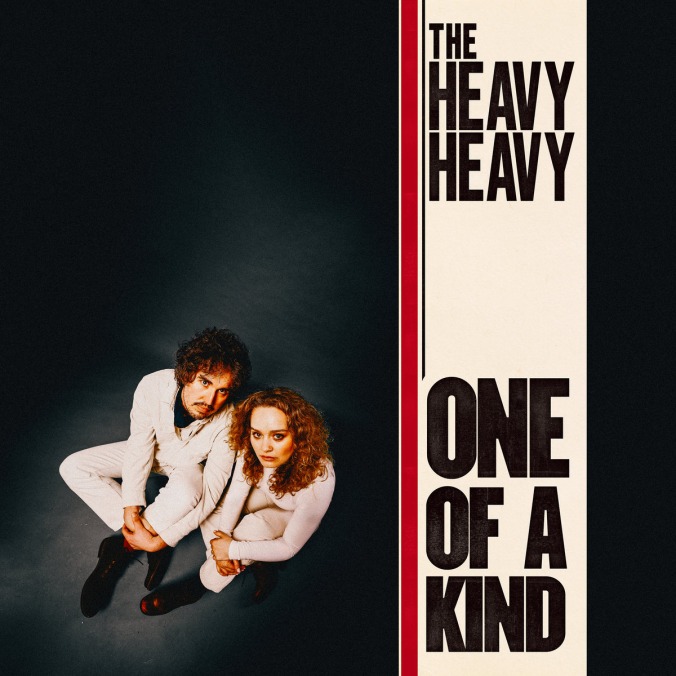 On their debut album, One of a Kind, The Heavy Heavy ramp up the pizazz into a volcanic tapestry of sights, sounds and colors. The surfy, garage-rock stylings of Turner’s roots blast into “Miracle Sun,” while he and Fuller adopt a Dire Straits-style twang on “Wild Emotion,” only to do a 180 into this orchestral, sprawling coda on “Salina.” And then, on “Happiness,” Turner and Fuller take their two-part harmonies and plug them into an slick, croony arrangement tinted by an organ not unlike Steve Winwood’s. For being a couple of Brits, they understand Laurel Canyon and Bakersfield music far better than most Americans do, and One of a Kind is a colossal motley and soulful, rollicking delight. One of a Kind is The Heavy Heavy’s “party record” that makes you, as Georgie Fuller succinctly puts it, “want to kick down the fucking door and puts a spark in you.” But making an album like that doesn’t come without its challenges. On “Feel,” she and William Turner were nose-diving into this strange groove that calls to mind the Stones and the Stone Roses, but the song’s melody and phrasing conjures something chameleonic and multi-hyphenated like Mellow Gold-era Beck. It ultimately ends up washed over by Madchester-style Britpop and gonzo poetics. “Happiness” was written last-minute and demanded the focus of “every cell” in Turner’s body to make a well-constructed song. —Matt Mitchell [ATO Records]
On their debut album, One of a Kind, The Heavy Heavy ramp up the pizazz into a volcanic tapestry of sights, sounds and colors. The surfy, garage-rock stylings of Turner’s roots blast into “Miracle Sun,” while he and Fuller adopt a Dire Straits-style twang on “Wild Emotion,” only to do a 180 into this orchestral, sprawling coda on “Salina.” And then, on “Happiness,” Turner and Fuller take their two-part harmonies and plug them into an slick, croony arrangement tinted by an organ not unlike Steve Winwood’s. For being a couple of Brits, they understand Laurel Canyon and Bakersfield music far better than most Americans do, and One of a Kind is a colossal motley and soulful, rollicking delight. One of a Kind is The Heavy Heavy’s “party record” that makes you, as Georgie Fuller succinctly puts it, “want to kick down the fucking door and puts a spark in you.” But making an album like that doesn’t come without its challenges. On “Feel,” she and William Turner were nose-diving into this strange groove that calls to mind the Stones and the Stone Roses, but the song’s melody and phrasing conjures something chameleonic and multi-hyphenated like Mellow Gold-era Beck. It ultimately ends up washed over by Madchester-style Britpop and gonzo poetics. “Happiness” was written last-minute and demanded the focus of “every cell” in Turner’s body to make a well-constructed song. —Matt Mitchell [ATO Records]
Read: “The Heavy Heavy: The Best of What’s Next”
20. The Last Dinner Party: Prelude to Ecstasy
 Surrounded by the kind of frenetic mania not seen for a new band in years, prospects for The Last Dinner Party’s debut record are impossibly high. But with the oh-so-aptly-titled Prelude to Ecstasy, the band doesn’t simply justify the hype surrounding them—they surpass it with flying colors. Collaborating with legendary English producer James Ford (known for his work with indie heavyweights like the Arctic Monkeys, Florence + the Machine, Gorillaz, Depeche Mode and HAIM, among others), the group recorded a rare lightning-in-a-bottle project that feels as much like a seminal work of literature as it does an album. Of course, upon first listen, many will be met with a slew of familiar favorites. “Caesar on a TV Screen” shines in all its 21st century-infused Shakespearean glory; “On Your Side,” with its gentle piano and airy vocals, plays like a futuristic Kate Bush track; guitar-pop heavy songs “My Lady of Mercy” and “Sinner” are irresistibly head-rolling. And who could forget the one that started it all—the aforementioned smash hit “Nothing Matters.” But there’s also enough new material here to keep always-hungry-for-more fans satisfied. The group wades into bold new territory on “Gjuha,” one of the project’s most memorable moments. Meanwhile, the vivid storytelling and climactic finale of “Portrait of a Dead Girl,” a piano-driven, slow-burn ballad that bridges the gap between Nico and Lana Del Rey, make the track one of the group’s best offerings to date. Prelude to Ecstasy is an incredible introduction that creates an inescapable feeling that we are bearing witness to the birth of a generational talent. —Elizabeth Braaten [Island]
Surrounded by the kind of frenetic mania not seen for a new band in years, prospects for The Last Dinner Party’s debut record are impossibly high. But with the oh-so-aptly-titled Prelude to Ecstasy, the band doesn’t simply justify the hype surrounding them—they surpass it with flying colors. Collaborating with legendary English producer James Ford (known for his work with indie heavyweights like the Arctic Monkeys, Florence + the Machine, Gorillaz, Depeche Mode and HAIM, among others), the group recorded a rare lightning-in-a-bottle project that feels as much like a seminal work of literature as it does an album. Of course, upon first listen, many will be met with a slew of familiar favorites. “Caesar on a TV Screen” shines in all its 21st century-infused Shakespearean glory; “On Your Side,” with its gentle piano and airy vocals, plays like a futuristic Kate Bush track; guitar-pop heavy songs “My Lady of Mercy” and “Sinner” are irresistibly head-rolling. And who could forget the one that started it all—the aforementioned smash hit “Nothing Matters.” But there’s also enough new material here to keep always-hungry-for-more fans satisfied. The group wades into bold new territory on “Gjuha,” one of the project’s most memorable moments. Meanwhile, the vivid storytelling and climactic finale of “Portrait of a Dead Girl,” a piano-driven, slow-burn ballad that bridges the gap between Nico and Lana Del Rey, make the track one of the group’s best offerings to date. Prelude to Ecstasy is an incredible introduction that creates an inescapable feeling that we are bearing witness to the birth of a generational talent. —Elizabeth Braaten [Island]
19. NewDad: Madra
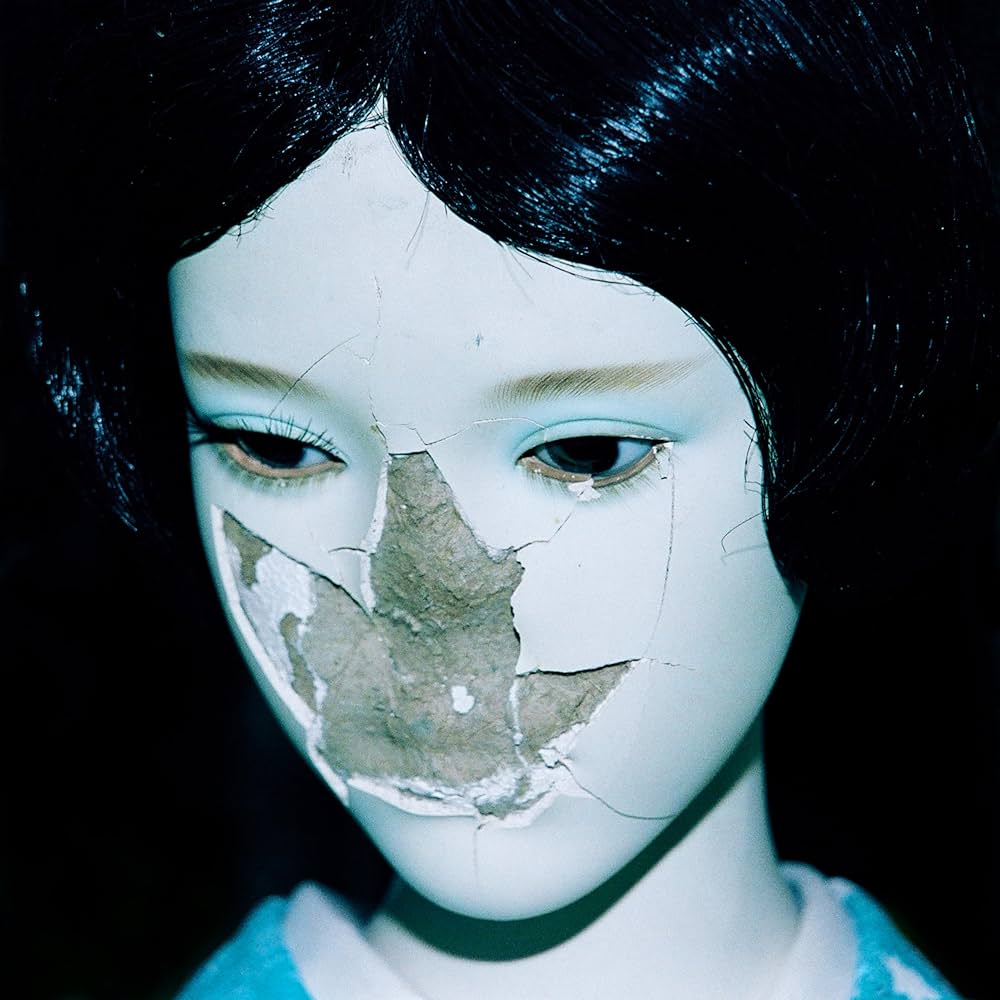 If Twilight came out in 2024, a song from NewDad’s debut LP Madra (Irish for “dog”) would definitely play during a scene featuring moody teenagers and even moodier vampires. That’s not to say the Galway band’s music is emo like much of the (iconic) Twilight soundtrack—they fit comfortably in shoegaze, dream pop and grunge territory—but more that lead singer Julie Dawson’s plaintive voice and NewDad’s reverb-laden sound are well-suited for overcast Forks skies. Opener “Angel” is a portent of doom, as Dawson sings from the perspective of a guilt-ridden person who feels like a burden to their partner. “Sickly Sweet” delves into the dichotomy of fascination and repulsion with vivid lyrics: “You’re sickly sweet / You’re sweetly sick / A shiny thing, I want to pick.” Nearly every moment on Madra feels like deadly nightshade: beautiful and menacing in equal measure. —Clare Martin [Fair Youth/Atlantic]
If Twilight came out in 2024, a song from NewDad’s debut LP Madra (Irish for “dog”) would definitely play during a scene featuring moody teenagers and even moodier vampires. That’s not to say the Galway band’s music is emo like much of the (iconic) Twilight soundtrack—they fit comfortably in shoegaze, dream pop and grunge territory—but more that lead singer Julie Dawson’s plaintive voice and NewDad’s reverb-laden sound are well-suited for overcast Forks skies. Opener “Angel” is a portent of doom, as Dawson sings from the perspective of a guilt-ridden person who feels like a burden to their partner. “Sickly Sweet” delves into the dichotomy of fascination and repulsion with vivid lyrics: “You’re sickly sweet / You’re sweetly sick / A shiny thing, I want to pick.” Nearly every moment on Madra feels like deadly nightshade: beautiful and menacing in equal measure. —Clare Martin [Fair Youth/Atlantic]
18. Disintegration: Shiver in a Weak Light
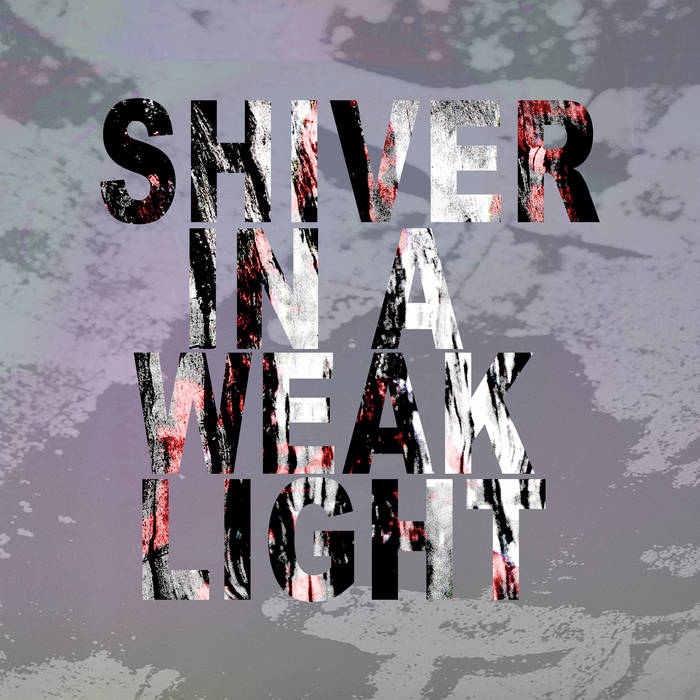 Disintegration’s debut full-length Shiver in a Weak Light arrives via the Cincinnati-based indie label Feel It Records, and it rattles with the foreboding, punishing throbs of electronic body music, the rapturous pop immediacy of new wave and the squawking guitars of noise-rock. Their convulsing, pop-y noise-tronica is an enlivening treasure trove, and it’s perfectly suited for the slow-motion car crash that is the 2020s, always walking a fine line between confrontation and escapism. Some of Shiver in a Weak Light’s punchiest moments feature ebullient guitar lines that mimic vocal melodies. When gyrating guitars mirror Haley Himiko’s moody, insistent chant of “When you write it down, you will remember” on “In Your Diary,” it sends a pleasing shockwave through my (microplastics-filled) brain. The following track “Lost and Found” has that same gratifying trick, and it’s another effortless pop gem that would stick out on any record’s tracklist—hell, you could almost karaoke this one without getting judging glares from a dive bar full of people. The jerky, spiky industrial-pop of “Shot by Both Sides” also leaves its mark, with unpredictable textures thrashing around and tickling the depths of your ear canal. In contrast to Himiko’s soaring pop choruses, “A Thousand Clouds of Static” is equipped with the mysterious, unshowy cool of Noah Anthony’s lead vocals, which build to a heady climax and interact with the muffled robustness of Himiko’s backing voice. Then there’s the ever-important first track, “Pioneer,” opening with a chugging synth that sounds like you’re ascending a rollercoaster hill, full steam ahead—the perfect intro for a group with a knack for transportive world-building. A friend of the band likens the song to passing through “a weird sewer in a videogame,” which succinctly captures the track’s murky and menacing yet whimsical quality. Shiver in a Weak Light is a feast for the unwieldy imagination, evoking dystopian parallel dimensions, sparking circuit boards, and unnerving footage of blobby microorganisms multiplying at an alarming rate. —Lizzie Manno
Disintegration’s debut full-length Shiver in a Weak Light arrives via the Cincinnati-based indie label Feel It Records, and it rattles with the foreboding, punishing throbs of electronic body music, the rapturous pop immediacy of new wave and the squawking guitars of noise-rock. Their convulsing, pop-y noise-tronica is an enlivening treasure trove, and it’s perfectly suited for the slow-motion car crash that is the 2020s, always walking a fine line between confrontation and escapism. Some of Shiver in a Weak Light’s punchiest moments feature ebullient guitar lines that mimic vocal melodies. When gyrating guitars mirror Haley Himiko’s moody, insistent chant of “When you write it down, you will remember” on “In Your Diary,” it sends a pleasing shockwave through my (microplastics-filled) brain. The following track “Lost and Found” has that same gratifying trick, and it’s another effortless pop gem that would stick out on any record’s tracklist—hell, you could almost karaoke this one without getting judging glares from a dive bar full of people. The jerky, spiky industrial-pop of “Shot by Both Sides” also leaves its mark, with unpredictable textures thrashing around and tickling the depths of your ear canal. In contrast to Himiko’s soaring pop choruses, “A Thousand Clouds of Static” is equipped with the mysterious, unshowy cool of Noah Anthony’s lead vocals, which build to a heady climax and interact with the muffled robustness of Himiko’s backing voice. Then there’s the ever-important first track, “Pioneer,” opening with a chugging synth that sounds like you’re ascending a rollercoaster hill, full steam ahead—the perfect intro for a group with a knack for transportive world-building. A friend of the band likens the song to passing through “a weird sewer in a videogame,” which succinctly captures the track’s murky and menacing yet whimsical quality. Shiver in a Weak Light is a feast for the unwieldy imagination, evoking dystopian parallel dimensions, sparking circuit boards, and unnerving footage of blobby microorganisms multiplying at an alarming rate. —Lizzie Manno
Read: “Disintegration: The Best of What’s Next”
17. Mk.gee: Two Star & the Dream Police
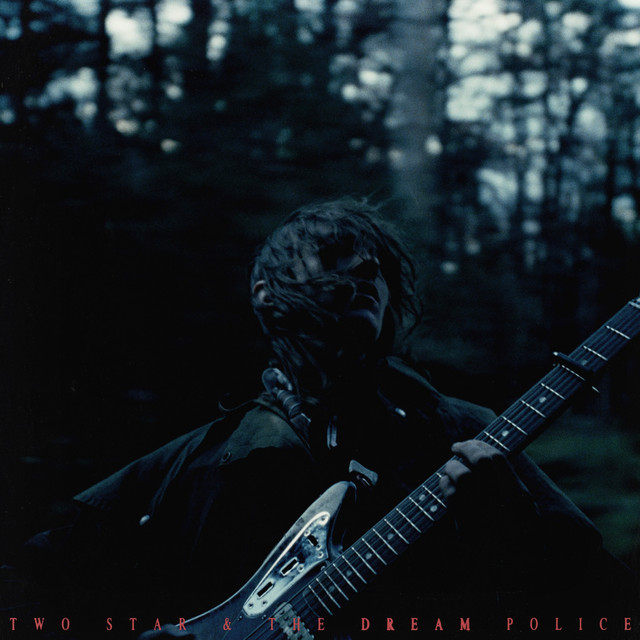 Mike Gordon, the elusive guitarist behind Mk.gee, asks a lot of questions on Two Star & the Dream Police, and while these probings make up the core of his meditative debut album, you’re not going to find many answers. In fact, you’ll probably end up asking your own questions while listening to it: Did I just hear a guitar or a synth? What exactly is he singing about? What’s falling over at the halfway mark of “Are You Looking Up”? But that’s the joy of Two Star & the Dream Police, because the album is constantly morphing, from World of Echo-style Arthur Russell distortions (“Rylee & I”) to murky ruminations that blossom into ‘80s sophisti-pop breakdowns (“I Want”). Gordon purposefully toys with your expectations, and Two Star & the Dream Police achieves his goal of making liminal guitar music. It’s seemingly unknown but feels entirely familiar. —Jaeden Pinder [R&R Digital]
Mike Gordon, the elusive guitarist behind Mk.gee, asks a lot of questions on Two Star & the Dream Police, and while these probings make up the core of his meditative debut album, you’re not going to find many answers. In fact, you’ll probably end up asking your own questions while listening to it: Did I just hear a guitar or a synth? What exactly is he singing about? What’s falling over at the halfway mark of “Are You Looking Up”? But that’s the joy of Two Star & the Dream Police, because the album is constantly morphing, from World of Echo-style Arthur Russell distortions (“Rylee & I”) to murky ruminations that blossom into ‘80s sophisti-pop breakdowns (“I Want”). Gordon purposefully toys with your expectations, and Two Star & the Dream Police achieves his goal of making liminal guitar music. It’s seemingly unknown but feels entirely familiar. —Jaeden Pinder [R&R Digital]
16. Chanel Beads: Your Day Will Come
 “Dedicated to the World” immediately ushers you into Your Day Will Come’s liminal space, as long synths stretch as if they’re rising from bed, drawing the blinds. Acoustic guitar then picks up the pace and distorted strings jut in, chiming and shimmering as Shane Lavers’s high-pitched vocals roll in a stream of consciousness, as if freestyling a feeling. “Life stretches out and recedes in me / for you / I had that thought again / is memory just acting out, erasing / what did you see?” Immediately, Shane Lavers announces himself as the unreliable narrator, questioning the validity of his own unspecified memories and impulses. The uncertainty continues on “Police Scanner” as Lavers proselytizes alongside a millscany of layered strings, hummed synths and poised percussion. “You owe it to yourself / gotta believe in something else,” he mutters, trying to convince himself, and anyone listening. Lavers silently gives himself time to process too, meandering in the instrumental ambience of “Your Day Will Come” and “Coffee Culture.” Your Day Will Come promises inevitability. Here’s another inevitability: Chanel Beads is bound for greatness. For years now, Lavers has been workshopping his avant-garde pop around the greater NY DIY scene. Chanel Beads has become one of those Brooklyn bands everyone seems to have seen live either on some guy’s rooftop or in a small, crowded bar, and all that hard work has culminated into a gorgeous, career-long debut. Chanel Beads’ day is finally here, now. —Sam Small [Jagjaguwar]
“Dedicated to the World” immediately ushers you into Your Day Will Come’s liminal space, as long synths stretch as if they’re rising from bed, drawing the blinds. Acoustic guitar then picks up the pace and distorted strings jut in, chiming and shimmering as Shane Lavers’s high-pitched vocals roll in a stream of consciousness, as if freestyling a feeling. “Life stretches out and recedes in me / for you / I had that thought again / is memory just acting out, erasing / what did you see?” Immediately, Shane Lavers announces himself as the unreliable narrator, questioning the validity of his own unspecified memories and impulses. The uncertainty continues on “Police Scanner” as Lavers proselytizes alongside a millscany of layered strings, hummed synths and poised percussion. “You owe it to yourself / gotta believe in something else,” he mutters, trying to convince himself, and anyone listening. Lavers silently gives himself time to process too, meandering in the instrumental ambience of “Your Day Will Come” and “Coffee Culture.” Your Day Will Come promises inevitability. Here’s another inevitability: Chanel Beads is bound for greatness. For years now, Lavers has been workshopping his avant-garde pop around the greater NY DIY scene. Chanel Beads has become one of those Brooklyn bands everyone seems to have seen live either on some guy’s rooftop or in a small, crowded bar, and all that hard work has culminated into a gorgeous, career-long debut. Chanel Beads’ day is finally here, now. —Sam Small [Jagjaguwar]
15. Blood: Loving You Backwards
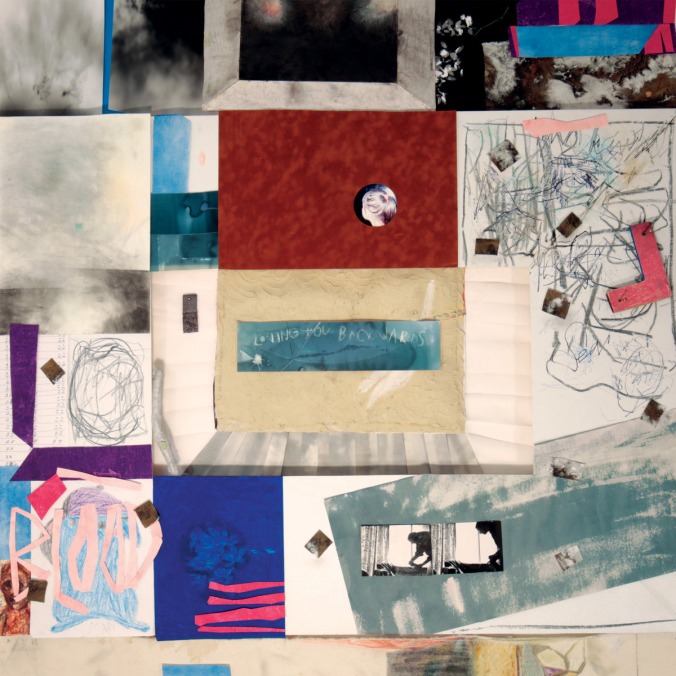 The debut album from the queer, postal-punk Philadelphia six-piece Blood is an intimate, poetically distant mirage of post-rock and pop. Loving You Backwards is a departure from the band’s operatic past. Instead, these 10 songs are quieter and much more focused on contained hooks and memorable melodies. The Strokes-like guitars of “Spaced Out” and the age-old rises and falls of “TV for a Reason” sound miraculously exciting, even when Tim O’Brien’s lyrics fall into tragic territory; “One Dimensional Man” zeroes in on the idea that sex might “distract us from our oppressors.” There’s no doubt that Loving You Backwards is a rewarding listen. Read between the lines of the stories being told by these Philadelphians, and you’ll be rewarded with even more clarity and unclarity. Everything comes to a head on “Bare,” the emotive, skeleton-stripping ballad that rollicks as confoundingly as it stirs up grief and longing. “In the evening on someone else’s time, believe in what I told you,” O’Brien sings. “It’s all that I’m meaning.” Loving You Backwards is Blood’s record of “ideas and big honesty.” You can feel all of it in every note. —Matt Mitchell [Ramp Local]
The debut album from the queer, postal-punk Philadelphia six-piece Blood is an intimate, poetically distant mirage of post-rock and pop. Loving You Backwards is a departure from the band’s operatic past. Instead, these 10 songs are quieter and much more focused on contained hooks and memorable melodies. The Strokes-like guitars of “Spaced Out” and the age-old rises and falls of “TV for a Reason” sound miraculously exciting, even when Tim O’Brien’s lyrics fall into tragic territory; “One Dimensional Man” zeroes in on the idea that sex might “distract us from our oppressors.” There’s no doubt that Loving You Backwards is a rewarding listen. Read between the lines of the stories being told by these Philadelphians, and you’ll be rewarded with even more clarity and unclarity. Everything comes to a head on “Bare,” the emotive, skeleton-stripping ballad that rollicks as confoundingly as it stirs up grief and longing. “In the evening on someone else’s time, believe in what I told you,” O’Brien sings. “It’s all that I’m meaning.” Loving You Backwards is Blood’s record of “ideas and big honesty.” You can feel all of it in every note. —Matt Mitchell [Ramp Local]
14. Molly Lewis: On the Lips
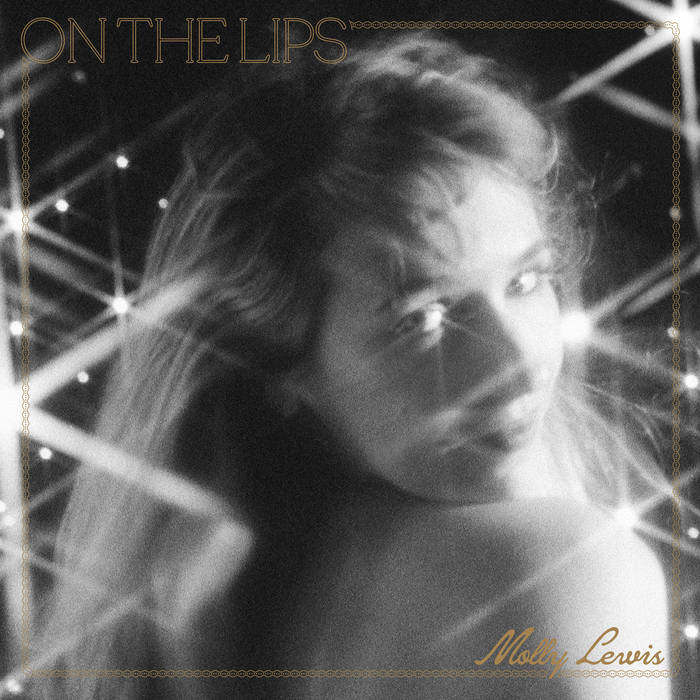 We know that Molly Lewis can whistle. In fact, the Australian musician has already etched her name in the modern music zeitgeist by doing it better than nearly any contemporary of hers who may arise. Recently, she’s toured with Weyes Blood and appeared on the Barbie soundtrack, but her debut solo album—On the Lips—is a brooding, gothic, noiristic portrait of smoke-filled lounges and haunted casino corridors. Lewis invites Nick Hackim, BadBadNotGood’s Chester Hansen, the Menahan Street Band and Thee Sacred Souls to fill out the sound, and the result is a Wild West of vignettes—each of which center Lewis and her whistling which, at this point, has transcended instrumentation. Her deliveries tell stories of their own, the backing arrangements often nothing more than set pieces aimed to decorate Lewis’ gravitational, lilting fife. Upon its initial announcement, it seemed possible that On the Lips could be one of the most exciting and unique artist introductions in recent memory. Now that we have songs like “Lounge Lizard,” “The Crying Game” and “Crushed Velvet” at our disposal, that possibility is nothing more than a fact. —Matt Mitchell [Jagjaguwar]
We know that Molly Lewis can whistle. In fact, the Australian musician has already etched her name in the modern music zeitgeist by doing it better than nearly any contemporary of hers who may arise. Recently, she’s toured with Weyes Blood and appeared on the Barbie soundtrack, but her debut solo album—On the Lips—is a brooding, gothic, noiristic portrait of smoke-filled lounges and haunted casino corridors. Lewis invites Nick Hackim, BadBadNotGood’s Chester Hansen, the Menahan Street Band and Thee Sacred Souls to fill out the sound, and the result is a Wild West of vignettes—each of which center Lewis and her whistling which, at this point, has transcended instrumentation. Her deliveries tell stories of their own, the backing arrangements often nothing more than set pieces aimed to decorate Lewis’ gravitational, lilting fife. Upon its initial announcement, it seemed possible that On the Lips could be one of the most exciting and unique artist introductions in recent memory. Now that we have songs like “Lounge Lizard,” “The Crying Game” and “Crushed Velvet” at our disposal, that possibility is nothing more than a fact. —Matt Mitchell [Jagjaguwar]
13. Lip Critic: Hex Dealer
 Riding off of the well-deserved hype from their debut album, Lip Critic have quickly sprung from being beloved headliners at SUNY Purchase’s on-campus venue The Stood to an electrifying, must-see live act at the epicenter of New York City’s current hardcore scene. Their debut album, Hex Dealer, is a joyride of blown-out noise and intoxicating calamity as vocalist Bret Kaser talks spirituality, beasts and monsters and depersonalizations in gas stations with the chilling tone of a late-night public access evangelist. The album’s dueling drumsets clash against each other, fostering a pulsating tornado that spits out chopped up samples and bursts of pure electricity—leaving a sludgy, tumultuous chaos in its path. It’s as amusing and vigorous as it is heart-racing and anxiety-inducing; songs like “The Heart” and “Milky Max” are so beautifully speedran to the point where they’re catchy. Getting to see Lip Critic play the songs off Hex Dealer live in a Staten Island radio station’s backyard this summer was the most memorable gig I attended this year. Watching Kaser, drummer Danny Eberle and mixmaster Connor Kleitz writhe and teeter on stage while slamming on their machines and continuously leaping into the mosh felt like I was attending a religious event, heeding to the scripture preached on tracks like “Sermon”: “I chose you from the second I was born / When the egg met the sperm in the womb of the world.” It wasn’t just a set from a show—it truly was an all-encapsulating experience; in that moment everyone present was tunnel-visioned into the metallic, racing world that Lip Critic effortlessly etches and structures for all who will listen. —Alli Dempsey [Partisan]
Riding off of the well-deserved hype from their debut album, Lip Critic have quickly sprung from being beloved headliners at SUNY Purchase’s on-campus venue The Stood to an electrifying, must-see live act at the epicenter of New York City’s current hardcore scene. Their debut album, Hex Dealer, is a joyride of blown-out noise and intoxicating calamity as vocalist Bret Kaser talks spirituality, beasts and monsters and depersonalizations in gas stations with the chilling tone of a late-night public access evangelist. The album’s dueling drumsets clash against each other, fostering a pulsating tornado that spits out chopped up samples and bursts of pure electricity—leaving a sludgy, tumultuous chaos in its path. It’s as amusing and vigorous as it is heart-racing and anxiety-inducing; songs like “The Heart” and “Milky Max” are so beautifully speedran to the point where they’re catchy. Getting to see Lip Critic play the songs off Hex Dealer live in a Staten Island radio station’s backyard this summer was the most memorable gig I attended this year. Watching Kaser, drummer Danny Eberle and mixmaster Connor Kleitz writhe and teeter on stage while slamming on their machines and continuously leaping into the mosh felt like I was attending a religious event, heeding to the scripture preached on tracks like “Sermon”: “I chose you from the second I was born / When the egg met the sperm in the womb of the world.” It wasn’t just a set from a show—it truly was an all-encapsulating experience; in that moment everyone present was tunnel-visioned into the metallic, racing world that Lip Critic effortlessly etches and structures for all who will listen. —Alli Dempsey [Partisan]
Read: “Lip Critic: The Best of What’s Next”
12. Nia Archives: Silence Is Loud
 As peak-pandemic malaise seemed to slowly leave the broader musical conversation in 2024, BRAT was hardly the only club-friendly album plumbing the depths of the soul to a heady, thumping beat. As a self-proclaimed “New Gen Junglist,” Producer and DJ Nia Archives first made critical waves by taking the U.K.’s long-storied love affair with drum and bass—as well as rave culture—and spreading the romance on a global scale with her dense, eclectic soundscapes. The 25-year-old’s first full-length Silence Is Loud layers heartbroken lyrics over breakneck production to craft one of the year’s most interesting debuts. Songs like the title track, “Unfinished Business” and “Forbidden Feelingz” are so packed with personality and hooks to spare that you might not even notice Archives spilling her guts on the dancefloor. Still, for anyone looking to scratch that bittersweet itch, Silence Is Loud stands toe-to-toe with the year’s most acclaimed dance music. —Elise Soutar [Island]
As peak-pandemic malaise seemed to slowly leave the broader musical conversation in 2024, BRAT was hardly the only club-friendly album plumbing the depths of the soul to a heady, thumping beat. As a self-proclaimed “New Gen Junglist,” Producer and DJ Nia Archives first made critical waves by taking the U.K.’s long-storied love affair with drum and bass—as well as rave culture—and spreading the romance on a global scale with her dense, eclectic soundscapes. The 25-year-old’s first full-length Silence Is Loud layers heartbroken lyrics over breakneck production to craft one of the year’s most interesting debuts. Songs like the title track, “Unfinished Business” and “Forbidden Feelingz” are so packed with personality and hooks to spare that you might not even notice Archives spilling her guts on the dancefloor. Still, for anyone looking to scratch that bittersweet itch, Silence Is Loud stands toe-to-toe with the year’s most acclaimed dance music. —Elise Soutar [Island]
11. Ekko Astral: pink balloons
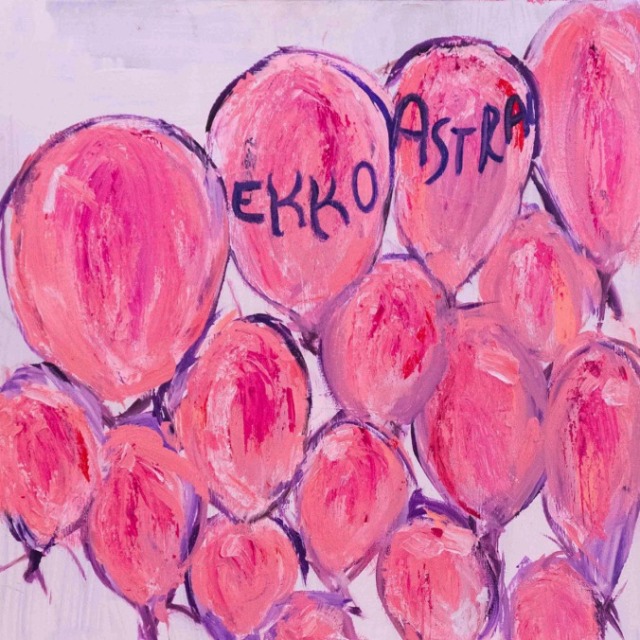 Considering the legacy of D.C.’s 40-year punk history—as groups like Bad Brains, Minor Threat, Fugazi, The Faith and Scream helped lay the hardcore foundation that’s still plugged into the city’s spirit—Ekko Astral fit right into a mold built for them to thrive in. And still, it feels like a small miracle that they’ve been able to break out like this. Born from Holzman and Hughes’ friendship after meeting each other as students at the University of Vermont, Ekko Astral embody the scene that made them—and, in an era where “scene” music is growing thinner and thinner, the release of pink balloons feels like a righteous and radical victory lap before the race has even started. And few bands have ever really achieved that sort of open-and-shut firepower. Normally it takes some groups a couple of records to get their wheels spinning; Ekko Astral and their “mascara mosh pit” sound are a beacon of joy and breaking points—through the noise of 11 tracks comes a resounding sense of urgent, non-negotiable optimism. What sticks out most about pink balloons is Ekko Astral’s commitment to singing like their generation speaks, which is how you get a barn-burning, circuit-breaking masher like “uwu type beat,” where Holzman, like a glitched-out, Kim Deal-like messenger, bemoans learning to love online and the “empty suit guys” who abuse TouchTunes at the bar. But such era-specific language and cultural references never register like they will become outdated as soon as the next wave of slang is built or the next lineage of celebrities grab hold of their 15 minutes of fame. Instead, like all good punk records we’ve been returning to for 40 years, the music of pink balloons comes across like an archive that captures a moment that will, someday, look different but sound the same. —Matt Mitchell [Topshelf]
Considering the legacy of D.C.’s 40-year punk history—as groups like Bad Brains, Minor Threat, Fugazi, The Faith and Scream helped lay the hardcore foundation that’s still plugged into the city’s spirit—Ekko Astral fit right into a mold built for them to thrive in. And still, it feels like a small miracle that they’ve been able to break out like this. Born from Holzman and Hughes’ friendship after meeting each other as students at the University of Vermont, Ekko Astral embody the scene that made them—and, in an era where “scene” music is growing thinner and thinner, the release of pink balloons feels like a righteous and radical victory lap before the race has even started. And few bands have ever really achieved that sort of open-and-shut firepower. Normally it takes some groups a couple of records to get their wheels spinning; Ekko Astral and their “mascara mosh pit” sound are a beacon of joy and breaking points—through the noise of 11 tracks comes a resounding sense of urgent, non-negotiable optimism. What sticks out most about pink balloons is Ekko Astral’s commitment to singing like their generation speaks, which is how you get a barn-burning, circuit-breaking masher like “uwu type beat,” where Holzman, like a glitched-out, Kim Deal-like messenger, bemoans learning to love online and the “empty suit guys” who abuse TouchTunes at the bar. But such era-specific language and cultural references never register like they will become outdated as soon as the next wave of slang is built or the next lineage of celebrities grab hold of their 15 minutes of fame. Instead, like all good punk records we’ve been returning to for 40 years, the music of pink balloons comes across like an archive that captures a moment that will, someday, look different but sound the same. —Matt Mitchell [Topshelf]
Read: “Ekko Astral: The Best of What’s Next”
10. Tex Patrello: Minotaur
 In an indie landscape where so much new music can feel like a facsimile of a facsimile of a genre or scene long buried and gone, it’s rare to find something as startlingly inventive and strange as Minotaur, the debut full-length album by Dallas-based musician Tex Patrello. It’s a vulgar shotgun wedding between the sacred and profane set to swirls of surreal psychedelia—weaving bagpipes, glitchy layers of vocals and baby-voiced cheerleading chants into images of Americana, teen romance and pimps cruising outside fast-casual chain restaurants. From the limping stomp of “Long Lost Pimp” to the mechanical whirl of the outro on “Anything Goes” to the cinematic, orchestral swells of closer “De Kalb,” Patrello recounts each seedy vignette in an airy confection of a voice, conducting the chaos with so much conviction that you can’t help but be swept into her off-kilter orbit. After a while, the druggy delirium feels more like lovesickness, intoxicating in even its most sinister turns. It’s a challenging, swoon-worthy listen you’ll find yourself reaching for again and again—if only to marvel at how she got away with it in the first place. —Elise Soutar [Self-Released]
In an indie landscape where so much new music can feel like a facsimile of a facsimile of a genre or scene long buried and gone, it’s rare to find something as startlingly inventive and strange as Minotaur, the debut full-length album by Dallas-based musician Tex Patrello. It’s a vulgar shotgun wedding between the sacred and profane set to swirls of surreal psychedelia—weaving bagpipes, glitchy layers of vocals and baby-voiced cheerleading chants into images of Americana, teen romance and pimps cruising outside fast-casual chain restaurants. From the limping stomp of “Long Lost Pimp” to the mechanical whirl of the outro on “Anything Goes” to the cinematic, orchestral swells of closer “De Kalb,” Patrello recounts each seedy vignette in an airy confection of a voice, conducting the chaos with so much conviction that you can’t help but be swept into her off-kilter orbit. After a while, the druggy delirium feels more like lovesickness, intoxicating in even its most sinister turns. It’s a challenging, swoon-worthy listen you’ll find yourself reaching for again and again—if only to marvel at how she got away with it in the first place. —Elise Soutar [Self-Released]
9. Davidsson: Lifelines
 Davidsson returned to Iceland during COVID, recording the entirely instrumental Lifelines at Sundlaugin Studio—Sigur Ros’ recording space and a former swimming pool. For him, the quiet of lockdown matched how his own life had slowed down in the wake of losing his father. Davidsson came into the studio with some loose ideas, but he wanted to keep things organic, with himself and collaborators Skúli Sverrisson (electric and acoustic bass) and Davíð Þór Jónsson (piano, organ and banjo) improvising and reacting to each other in real time. He favored single takes, and you can hear the instruments in conversation with each other, like on the sparse, dramatic opener “light in the dark,” which features Davidsson on droopy steel pedal and Jónsson on piano. The song happens in movements, like the stark gathering of notes at the start and the emergence of a mournful central melody, the steel pedal providing a few shafts of lights in a dark room. And all throughout, there are atmospheric noises—gentle scraping, small shuffling sounds—that make you feel like a very lucky fly on the wall of the studio. Mixing from the talented Noah Georgeson (Andy Shauf, Joanna Newsom, Devendra Banhart) only amplifies the visceralness of the aural mise-en-scène. While most of Lifelines is inspired by memories of his father, “afi” is dedicated to his maternal grandfather. He wanted to evoke “this feeling of going to your grandfather’s house… the smell of smoke, the radio in the distance and the home cooking.” Nostalgia seeps through as deftly plucked acoustic guitar kicks off the song, high and sweet and aching for a time long past. Sverrisson’s subtle bass, Jónsson’s gently swelling pump organ and fleeting tremolo practically conjure up an old-fashioned kitchen and boiling kettle—whether that of Davidsson’s grandfather in Iceland, or your own grandparents’. The standout here, though, is Davidsson’s exquisite harmonica playing, which could break your heart with its beauty. It calls out, reaching for a faraway memory that can never be fully returned to, but cherished in small snippets. —Clare Martin [OPIA]
Davidsson returned to Iceland during COVID, recording the entirely instrumental Lifelines at Sundlaugin Studio—Sigur Ros’ recording space and a former swimming pool. For him, the quiet of lockdown matched how his own life had slowed down in the wake of losing his father. Davidsson came into the studio with some loose ideas, but he wanted to keep things organic, with himself and collaborators Skúli Sverrisson (electric and acoustic bass) and Davíð Þór Jónsson (piano, organ and banjo) improvising and reacting to each other in real time. He favored single takes, and you can hear the instruments in conversation with each other, like on the sparse, dramatic opener “light in the dark,” which features Davidsson on droopy steel pedal and Jónsson on piano. The song happens in movements, like the stark gathering of notes at the start and the emergence of a mournful central melody, the steel pedal providing a few shafts of lights in a dark room. And all throughout, there are atmospheric noises—gentle scraping, small shuffling sounds—that make you feel like a very lucky fly on the wall of the studio. Mixing from the talented Noah Georgeson (Andy Shauf, Joanna Newsom, Devendra Banhart) only amplifies the visceralness of the aural mise-en-scène. While most of Lifelines is inspired by memories of his father, “afi” is dedicated to his maternal grandfather. He wanted to evoke “this feeling of going to your grandfather’s house… the smell of smoke, the radio in the distance and the home cooking.” Nostalgia seeps through as deftly plucked acoustic guitar kicks off the song, high and sweet and aching for a time long past. Sverrisson’s subtle bass, Jónsson’s gently swelling pump organ and fleeting tremolo practically conjure up an old-fashioned kitchen and boiling kettle—whether that of Davidsson’s grandfather in Iceland, or your own grandparents’. The standout here, though, is Davidsson’s exquisite harmonica playing, which could break your heart with its beauty. It calls out, reaching for a faraway memory that can never be fully returned to, but cherished in small snippets. —Clare Martin [OPIA]
Read: “Davidsson and the Spectrum of Sorrow”
8. 1010benja: Ten Total
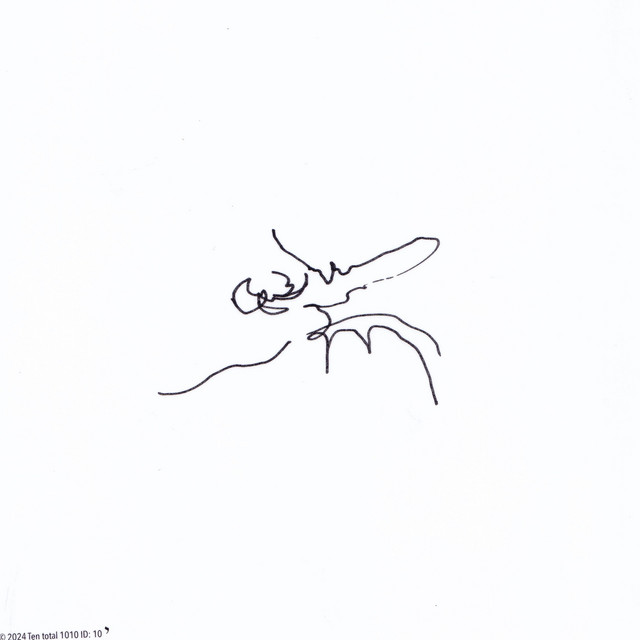 Years after making his grand entrance with 2017’s “Boofiness,” 1010Benja’s full-length debut arrived in the form of Ten Total. It encompasses his variegated, eclectic influences, which include everyone from Hideo Kojima to John Frusciante, in a concise, ten-track (of course!) package. He’ll go from acrobatic raps about reading Alan Moore, to gospel belts on “Twin,” to nonsensical onomatopoeia on “Penta.” As its name implies, Ten Total captures 1010’s totality. It’s not an easy task. —Grant Sharples [Three Six Zero]
Years after making his grand entrance with 2017’s “Boofiness,” 1010Benja’s full-length debut arrived in the form of Ten Total. It encompasses his variegated, eclectic influences, which include everyone from Hideo Kojima to John Frusciante, in a concise, ten-track (of course!) package. He’ll go from acrobatic raps about reading Alan Moore, to gospel belts on “Twin,” to nonsensical onomatopoeia on “Penta.” As its name implies, Ten Total captures 1010’s totality. It’s not an easy task. —Grant Sharples [Three Six Zero]
7. Blunt Chunks: The Butterfly Myth
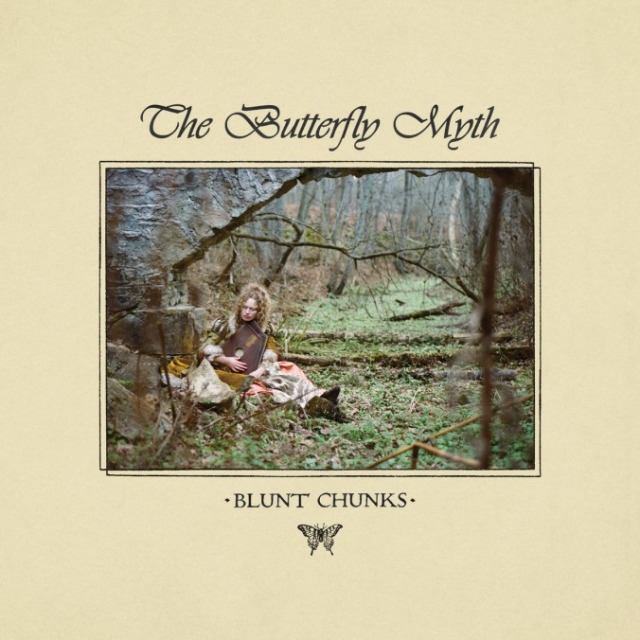 The Butterfly Myth is rich in texture, not in the least because of the distinct instrumental choices deployed to support Caitlin Woelfle-O’Brien’s levitating voice. Opener “Fill My Cup” starts with slow, weighty drumming, liberal tambourine usage and a little fuzzy guitar before fading away as Woelfle-O’Brien sings over a bed of keys and steel—adding just the right balance of punctuation and flourish needed to uplift her voice. Living somewhere between the softness of Sampha’s voice and the breadth of Aerial East’s, Woelfle-O’Brien’s voice suits the pensive soft rank lane that Blunt Chunks inhabits. Bolstered with layers at key moments and backup from singer Quinn Bates, the vocals breathe incredible emotion into heartfelt yet plain spoken lyrics. Feelings of anticipation, devotion, avoidance, despondence are all there, delivered with nuanced tricks of affectation and instrumentation that signal distinction but proximity. She cannot escape feeling all these in one body; neither can her listener. For an album that traffics in softness and mythology as well-tread as that of the butterfly, Blunt Chunks’ debut avoids the pitfalls that could send the music careening towards cliche. It’s diaristic, folksy indie done just right. Caitlin Woelfle-O’Brien and her band add a soulful sheen to the twangy backbone, presenting a more diverse palette than peers typically offer. The songs on The Butterfly Myth work in juxtaposition, doubt and dramatic turns that coagulate into a story where you’re invested in the outcome. It is not a “perfect” album but, for a debut album especially, it’s a feat. —Devon Chodzin [Telephone Explosion]
The Butterfly Myth is rich in texture, not in the least because of the distinct instrumental choices deployed to support Caitlin Woelfle-O’Brien’s levitating voice. Opener “Fill My Cup” starts with slow, weighty drumming, liberal tambourine usage and a little fuzzy guitar before fading away as Woelfle-O’Brien sings over a bed of keys and steel—adding just the right balance of punctuation and flourish needed to uplift her voice. Living somewhere between the softness of Sampha’s voice and the breadth of Aerial East’s, Woelfle-O’Brien’s voice suits the pensive soft rank lane that Blunt Chunks inhabits. Bolstered with layers at key moments and backup from singer Quinn Bates, the vocals breathe incredible emotion into heartfelt yet plain spoken lyrics. Feelings of anticipation, devotion, avoidance, despondence are all there, delivered with nuanced tricks of affectation and instrumentation that signal distinction but proximity. She cannot escape feeling all these in one body; neither can her listener. For an album that traffics in softness and mythology as well-tread as that of the butterfly, Blunt Chunks’ debut avoids the pitfalls that could send the music careening towards cliche. It’s diaristic, folksy indie done just right. Caitlin Woelfle-O’Brien and her band add a soulful sheen to the twangy backbone, presenting a more diverse palette than peers typically offer. The songs on The Butterfly Myth work in juxtaposition, doubt and dramatic turns that coagulate into a story where you’re invested in the outcome. It is not a “perfect” album but, for a debut album especially, it’s a feat. —Devon Chodzin [Telephone Explosion]
6. Rachel Chinouriri: What a Devastating Turn of Events
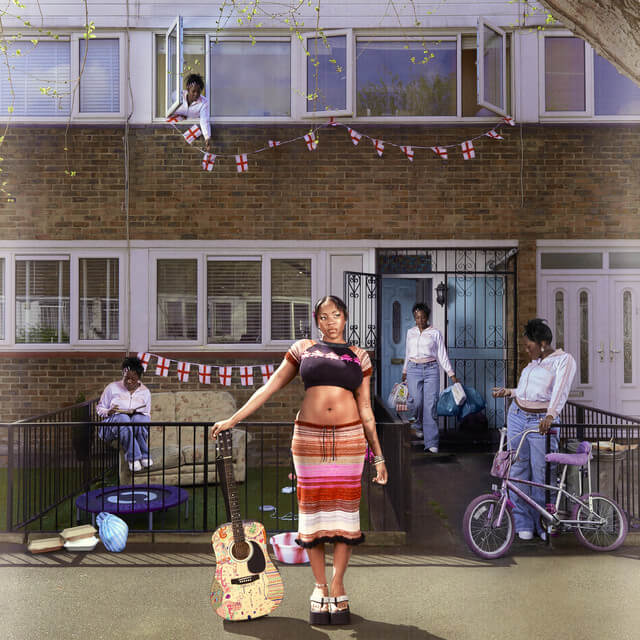 In a year of major pop records that make sweeping yet ultimately lackluster appeals toward confessionalism and vulnerability, the debut LP from British indie-pop newcomer Rachel Chinouriri is the year’s most emotionally and sonically striking coming-of-age concept album. Her music feels deeply personal and relatable without trying to be; its emotional impact never feels overwrought, and is always matched by a varied range of instrumental and production choices and Chinouriri’s engaging, elastic vocals. From the soaring, shoegazey meditation on imposter syndrome and leaving home (“The Hills”), to “Never Need Me,” the cinematic lead single and star-power proof-of-concept pop standout, to Chinouriri’s irreverent Cher Horowitz-inflected monologuing over the whistles and handclaps on “It Is What It Is,” to the breezy bravado on “Dumb Bitch Juice,” to the devastating diva balladry of “Robbed,” What a Devastating Turn of Events establishes Chinouriri as one of the most exciting young stars on the rise. —Grace Robins-Somerville [Parlophone]
In a year of major pop records that make sweeping yet ultimately lackluster appeals toward confessionalism and vulnerability, the debut LP from British indie-pop newcomer Rachel Chinouriri is the year’s most emotionally and sonically striking coming-of-age concept album. Her music feels deeply personal and relatable without trying to be; its emotional impact never feels overwrought, and is always matched by a varied range of instrumental and production choices and Chinouriri’s engaging, elastic vocals. From the soaring, shoegazey meditation on imposter syndrome and leaving home (“The Hills”), to “Never Need Me,” the cinematic lead single and star-power proof-of-concept pop standout, to Chinouriri’s irreverent Cher Horowitz-inflected monologuing over the whistles and handclaps on “It Is What It Is,” to the breezy bravado on “Dumb Bitch Juice,” to the devastating diva balladry of “Robbed,” What a Devastating Turn of Events establishes Chinouriri as one of the most exciting young stars on the rise. —Grace Robins-Somerville [Parlophone]
5. Kim Deal: Nobody Loves You More
 It should surprise no one that Kim Deal’s first-ever solo full-length Nobody Loves You More is both unmistakably her and also a fresh evolution of her sound. All of her integral elements are here: tenderness intertwined with tartness; spacious room tone; thumps and whooshes and bug-zapper guitars; familiar feelings conveyed through strange combinations of words. And then there is her voice—still a fusion of charm, attitude, a choir of angels and fine-grit sandpaper, just as it has been all along. Every song on Nobody Loves You More could be a Breeders song, but some more than others. “Disobedience,” for example, is an astringent stomper that would fit comfortably on the band’s best-known album, 1993’s Last Splash, while the sparkling, skyward “Come Running” feels like a spiritual cousin to the back half of 2018’s All Nerve. And “Wish I Was” is exactly the kind of effervescent pop song Deal has perfected over the years, right down to the slightly off-kilter expressions of feeling: “How I aspire you / The look and the lie of you,” she sings breathily over a propulsive bass line. “I see the sun on your hair.” More often, though, these songs capture Deal in her native mode: exploring new ideas and trying new things. The title track, which begins the record, blossoms into exquisite beauty thanks first to a string section, and then a startlingly vibrant horn section. (Horns also augment the pleasant bob of “Coast,” probably the catchiest song on the album.) On “Crystal Breath,” she leans into prickly post-punk guitar lines and what sounds like mechanized beats. And the album’s most rugged track, “Big Ben Beat,” is a mini-maelstrom of strings, synths and fuzzy noise as Deal aggressively spits out non-sequiturs: “Bursting bodies / Headbang ponytails / Battle childish giants / Talking to the wall.” —Ben Salmon [4AD]
It should surprise no one that Kim Deal’s first-ever solo full-length Nobody Loves You More is both unmistakably her and also a fresh evolution of her sound. All of her integral elements are here: tenderness intertwined with tartness; spacious room tone; thumps and whooshes and bug-zapper guitars; familiar feelings conveyed through strange combinations of words. And then there is her voice—still a fusion of charm, attitude, a choir of angels and fine-grit sandpaper, just as it has been all along. Every song on Nobody Loves You More could be a Breeders song, but some more than others. “Disobedience,” for example, is an astringent stomper that would fit comfortably on the band’s best-known album, 1993’s Last Splash, while the sparkling, skyward “Come Running” feels like a spiritual cousin to the back half of 2018’s All Nerve. And “Wish I Was” is exactly the kind of effervescent pop song Deal has perfected over the years, right down to the slightly off-kilter expressions of feeling: “How I aspire you / The look and the lie of you,” she sings breathily over a propulsive bass line. “I see the sun on your hair.” More often, though, these songs capture Deal in her native mode: exploring new ideas and trying new things. The title track, which begins the record, blossoms into exquisite beauty thanks first to a string section, and then a startlingly vibrant horn section. (Horns also augment the pleasant bob of “Coast,” probably the catchiest song on the album.) On “Crystal Breath,” she leans into prickly post-punk guitar lines and what sounds like mechanized beats. And the album’s most rugged track, “Big Ben Beat,” is a mini-maelstrom of strings, synths and fuzzy noise as Deal aggressively spits out non-sequiturs: “Bursting bodies / Headbang ponytails / Battle childish giants / Talking to the wall.” —Ben Salmon [4AD]
Read: “Kim Deal, You Were Worth the Wait”
4. Wishy: Triple Seven
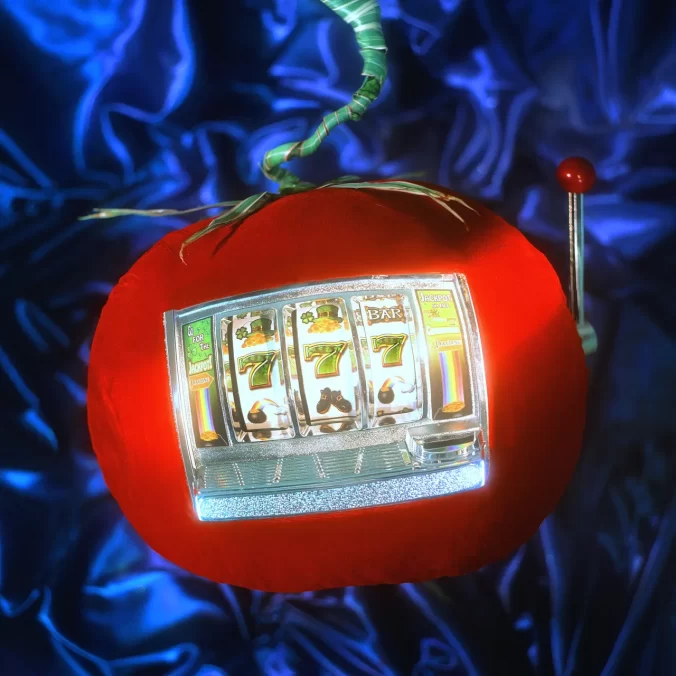 At 10 tracks and 41 minutes long, Triple Seven solidifies Wishy’s sound and proves that the band—formed in 2021 by longtime friends Kevin Krauter and Nina Pitchkites—has the chops to sustain its standard of quality across a full-length release. This is not terribly surprising, but for rock fans burned by promising bands’ patchy releases in the past, it’s nice to hear. Krauter and Pitchkites trade off lead vocals—the former’s come from a more nasally pinched pop-punk tradition, while the latter’s are calm and cool, often carrying melodies that float above it all. (Pitchkites sounds like she was born to sing in a dream pop band.) Throughout the album, they play off each other perfectly, whether they’re providing tonal tension (see the back-to-back zigzag of the strutting “Busted” into the luscious “Just Like Sunday”) or intertwining seamlessly, as they do on “Game,” a propulsive chunk of jangle-pop delivered at a punk pace. Wishy have many strengths, but chief among them is their affinity for instrumental hooks that surface from the swirl and settle in your brain for the foreseeable future. They’re everywhere: A three-note idea that crests over and over again in the background of “Sick Sweet”; the skittering rhythm that underpins the title track; the arena-ready twin-guitar solo in “Persuasion”; the extra-crunchy final third of “Love on the Outside,” in which a jaunty pop tune turns into roaring riff-rock. And then there’s the nursery-rhyme cadence of the album’s caustic closer, “Spit,” in which Krauter and Pitchkites sing, na-na-boo-boo-style: “Who’s gonna break my heart? Who’s gonna wear my mind out? Wish this choice was mine.” OK, that’s a vocal hook, but the point remains the same: Triple Seven spills over with these kinds of sounds, which also happen to be the kinds of sounds that keep people coming back again and again. Turns out Wishy have made not only one of the best debut albums of the year, but also one of the most irresistible, unshakeable albums of the year as well. It takes more than just luck to be this good. —Ben Salmon [Winspear]
At 10 tracks and 41 minutes long, Triple Seven solidifies Wishy’s sound and proves that the band—formed in 2021 by longtime friends Kevin Krauter and Nina Pitchkites—has the chops to sustain its standard of quality across a full-length release. This is not terribly surprising, but for rock fans burned by promising bands’ patchy releases in the past, it’s nice to hear. Krauter and Pitchkites trade off lead vocals—the former’s come from a more nasally pinched pop-punk tradition, while the latter’s are calm and cool, often carrying melodies that float above it all. (Pitchkites sounds like she was born to sing in a dream pop band.) Throughout the album, they play off each other perfectly, whether they’re providing tonal tension (see the back-to-back zigzag of the strutting “Busted” into the luscious “Just Like Sunday”) or intertwining seamlessly, as they do on “Game,” a propulsive chunk of jangle-pop delivered at a punk pace. Wishy have many strengths, but chief among them is their affinity for instrumental hooks that surface from the swirl and settle in your brain for the foreseeable future. They’re everywhere: A three-note idea that crests over and over again in the background of “Sick Sweet”; the skittering rhythm that underpins the title track; the arena-ready twin-guitar solo in “Persuasion”; the extra-crunchy final third of “Love on the Outside,” in which a jaunty pop tune turns into roaring riff-rock. And then there’s the nursery-rhyme cadence of the album’s caustic closer, “Spit,” in which Krauter and Pitchkites sing, na-na-boo-boo-style: “Who’s gonna break my heart? Who’s gonna wear my mind out? Wish this choice was mine.” OK, that’s a vocal hook, but the point remains the same: Triple Seven spills over with these kinds of sounds, which also happen to be the kinds of sounds that keep people coming back again and again. Turns out Wishy have made not only one of the best debut albums of the year, but also one of the most irresistible, unshakeable albums of the year as well. It takes more than just luck to be this good. —Ben Salmon [Winspear]
Read: “Wishy: The Best of What’s Next”
3. Beth Gibbons: Lives Outgrown
 If you arrive at Lives Outgrown looking for something that sounds like Portishead, you might find your thirst briefly satiated by “Floating on a Moment”—but it’s only a slight parallel. The song is melancholic yet enchanting, as Beth Gibbons finds herself trapped in a purgatory of middle-age—the prosperous hope of the future suddenly feels dimmer, and retrospect snaps itself back into place with a much less graceful ferocity. Lives Outgrown achieves a wondrous feat of relatability—even if what inspired these songs are not universal feelings. Gibbons’s splendor is her innate ability to make our own experiences feel denser and louder. When she sings about the timing never being right “when you’re losing a soul” on “Burden of Life,” anyone who has confronted the monstrous clamors of grief may feel it deeply. Gibbons likens her response to lostness to pebbles holding court on a shoreside, to understanding why generations dwindle. “I used to feel the feelings,” she admits, over the strums of her own acoustic guitar and Lee Harris’s percussive thrums. “Love that I once said I’d never rile.” Gibbons’s first solo record is embroidered with raw, cherished instrumentation that duets with open spaces. It is sometimes beautiful, sometimes jagged and worrisome. —Matt Mitchell [Domino]
If you arrive at Lives Outgrown looking for something that sounds like Portishead, you might find your thirst briefly satiated by “Floating on a Moment”—but it’s only a slight parallel. The song is melancholic yet enchanting, as Beth Gibbons finds herself trapped in a purgatory of middle-age—the prosperous hope of the future suddenly feels dimmer, and retrospect snaps itself back into place with a much less graceful ferocity. Lives Outgrown achieves a wondrous feat of relatability—even if what inspired these songs are not universal feelings. Gibbons’s splendor is her innate ability to make our own experiences feel denser and louder. When she sings about the timing never being right “when you’re losing a soul” on “Burden of Life,” anyone who has confronted the monstrous clamors of grief may feel it deeply. Gibbons likens her response to lostness to pebbles holding court on a shoreside, to understanding why generations dwindle. “I used to feel the feelings,” she admits, over the strums of her own acoustic guitar and Lee Harris’s percussive thrums. “Love that I once said I’d never rile.” Gibbons’s first solo record is embroidered with raw, cherished instrumentation that duets with open spaces. It is sometimes beautiful, sometimes jagged and worrisome. —Matt Mitchell [Domino]
2. Fabiana Palladino: Fabiana Palladino
 On her self-titled debut album, Palladino’s breakup anthems offer the velveteen emotion of ‘80s soul pop with lyrics that don’t hold back. Where hazy, vintage production can erect a barrier between listener and singer, Palladino’s intimate, Janet Jacksonian musings feel immediate, breathing much-needed vitality into a recognizable sound. 21st century pop loves to play in the sandboxes of its progenitors, to varying degrees of success. In the underground, there is a wealth of musicians borrowing vintage pop’s tools and updating them just enough to bridge past and present. Fabiana Palladino approximates these gestures and more, incorporating soul and funk on tracks overcome with emotion. Her feelings are more kinetic, less contemplative. Whether on the guitar-driven balladry of “Give Me A Sign” or on the booming clarity of “I Can’t Dream Anymore,” Palladino’s breakup songs are rich in style and seriousness. It’s the kind of pop that’s meant to carry you away on a bed of pure feeling. With this album, Palladino recalls a time when pop craftsmanship didn’t require unfettered access to tabloid archives, when thematic relatability and sonic commitment could let anyone with reasonable talent top the charts. Say what you will about the Stock Aitken Waterman era of British radio pop—and there’s much to be said—but at least the Hit Factory’s assembly line could generate pop celebrity without relying on stars excavating the minutiae of their public personas for lyrical content. Palladino splits the difference between SAW cynicism and contemporary realities with pop that draws from personal experience but shared with bigger, universal questions in mind, supported by detailed, variegated production. It’s pop that works its way in with iron hooks arranged to stoke feelings of clarity, grief and desire. That’s what separates the flavor-of-the-month chart topper from a true classic: genuine depth and unsquashable memorability. —Devon Chodzin [XL]
On her self-titled debut album, Palladino’s breakup anthems offer the velveteen emotion of ‘80s soul pop with lyrics that don’t hold back. Where hazy, vintage production can erect a barrier between listener and singer, Palladino’s intimate, Janet Jacksonian musings feel immediate, breathing much-needed vitality into a recognizable sound. 21st century pop loves to play in the sandboxes of its progenitors, to varying degrees of success. In the underground, there is a wealth of musicians borrowing vintage pop’s tools and updating them just enough to bridge past and present. Fabiana Palladino approximates these gestures and more, incorporating soul and funk on tracks overcome with emotion. Her feelings are more kinetic, less contemplative. Whether on the guitar-driven balladry of “Give Me A Sign” or on the booming clarity of “I Can’t Dream Anymore,” Palladino’s breakup songs are rich in style and seriousness. It’s the kind of pop that’s meant to carry you away on a bed of pure feeling. With this album, Palladino recalls a time when pop craftsmanship didn’t require unfettered access to tabloid archives, when thematic relatability and sonic commitment could let anyone with reasonable talent top the charts. Say what you will about the Stock Aitken Waterman era of British radio pop—and there’s much to be said—but at least the Hit Factory’s assembly line could generate pop celebrity without relying on stars excavating the minutiae of their public personas for lyrical content. Palladino splits the difference between SAW cynicism and contemporary realities with pop that draws from personal experience but shared with bigger, universal questions in mind, supported by detailed, variegated production. It’s pop that works its way in with iron hooks arranged to stoke feelings of clarity, grief and desire. That’s what separates the flavor-of-the-month chart topper from a true classic: genuine depth and unsquashable memorability. —Devon Chodzin [XL]
Read: “Fabiana Palladino: The Best of What’s Next”
1. Friko: Where we’ve been, Where we go from here
 “20 years spent above this place, you could smell the iron from the room,” Niko Kapetan hums at the opening of Where we’ve been, Where we go from here. “And the train was running through the window, carrying a pillow so I could lay my head down onto you.” His vocals galvanize saccharine guitar chords into an oblivion of noise, gang vocals and a wallpaper of distorted gibberish. It’s what I’d imagine Conor Oberst making a pre-OK Computer Radiohead song in 2024 might sound like; this is how Friko has chosen to introduce themselves to us, with phantasmic guitars and a volcanic wall of sound so arresting and mythical you’ll have to run the whole track back just as soon as it fades out. It’s one hell of a hello. Where we’ve been, Where we go from here is inspired by everything from classical concertos to the Garden State soundtrack to Led Zeppelin. Everything they’ve connected with or have listened to, even passively, enforces the way Kapetan and Bailey Minzenberger play alone and together. At the heart of Where we’ve been, Where we go from here, there is a lingering sense of intensity, renewal and out-of-body connections to performance and writing. The whole record is one big thesis statement on, as Kapetan puts it, “wanting better for yourself and the people around you, but wondering how you can possibly do that with the world we live in.” Thus, there is burning. There is despair. But, there is also salvation and closure and resolution. In just a matter of minutes, Where we’ve been, Where we go from here will make you run through a turnstile of emotions. “I’ll write a song, you’ll sing along,” Kapetan sings on “Until I’m With You Again.” “I’ll laugh, you’ll cry, our world inside a song.” It’s risky, poetic, sublime and intimate music that, subsequently, fits perfectly into the framework of Chicago’s lineage of boundary-pushing rock ‘n’ roll while also obliterating any preconceptions of what brutal, complex, feverish and experimental work is supposed to look and sound like. Through Kapetan’s lyricism, Minzenberger’s instrumentation and the collectively massive, beautiful love they hold for one another, Friko are animated, direct and vividly in-sync. And the world has never needed that kind of joyous, purposeful brilliance more than it does right now. —Matt Mitchell [ATO Records]
“20 years spent above this place, you could smell the iron from the room,” Niko Kapetan hums at the opening of Where we’ve been, Where we go from here. “And the train was running through the window, carrying a pillow so I could lay my head down onto you.” His vocals galvanize saccharine guitar chords into an oblivion of noise, gang vocals and a wallpaper of distorted gibberish. It’s what I’d imagine Conor Oberst making a pre-OK Computer Radiohead song in 2024 might sound like; this is how Friko has chosen to introduce themselves to us, with phantasmic guitars and a volcanic wall of sound so arresting and mythical you’ll have to run the whole track back just as soon as it fades out. It’s one hell of a hello. Where we’ve been, Where we go from here is inspired by everything from classical concertos to the Garden State soundtrack to Led Zeppelin. Everything they’ve connected with or have listened to, even passively, enforces the way Kapetan and Bailey Minzenberger play alone and together. At the heart of Where we’ve been, Where we go from here, there is a lingering sense of intensity, renewal and out-of-body connections to performance and writing. The whole record is one big thesis statement on, as Kapetan puts it, “wanting better for yourself and the people around you, but wondering how you can possibly do that with the world we live in.” Thus, there is burning. There is despair. But, there is also salvation and closure and resolution. In just a matter of minutes, Where we’ve been, Where we go from here will make you run through a turnstile of emotions. “I’ll write a song, you’ll sing along,” Kapetan sings on “Until I’m With You Again.” “I’ll laugh, you’ll cry, our world inside a song.” It’s risky, poetic, sublime and intimate music that, subsequently, fits perfectly into the framework of Chicago’s lineage of boundary-pushing rock ‘n’ roll while also obliterating any preconceptions of what brutal, complex, feverish and experimental work is supposed to look and sound like. Through Kapetan’s lyricism, Minzenberger’s instrumentation and the collectively massive, beautiful love they hold for one another, Friko are animated, direct and vividly in-sync. And the world has never needed that kind of joyous, purposeful brilliance more than it does right now. —Matt Mitchell [ATO Records]
Read: “Friko’s World Inside a Song”
[Editor’s Note: A previous edition of this list incorrectly included GIFT’s Illuminator.]







































